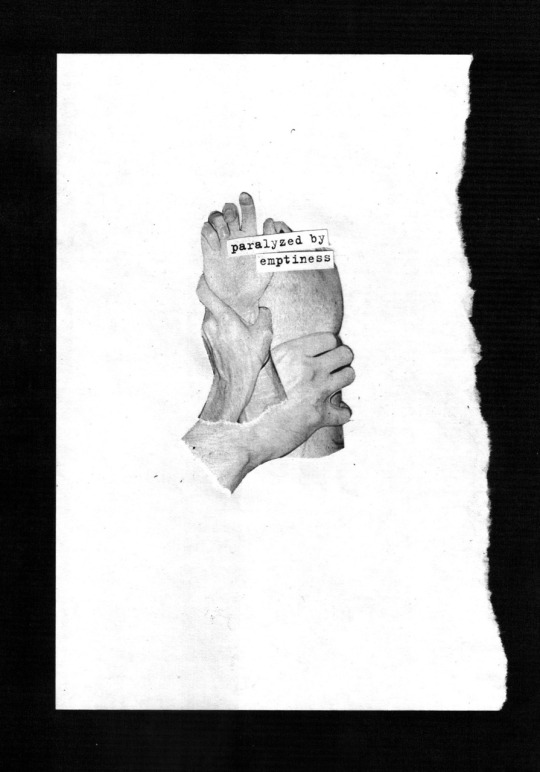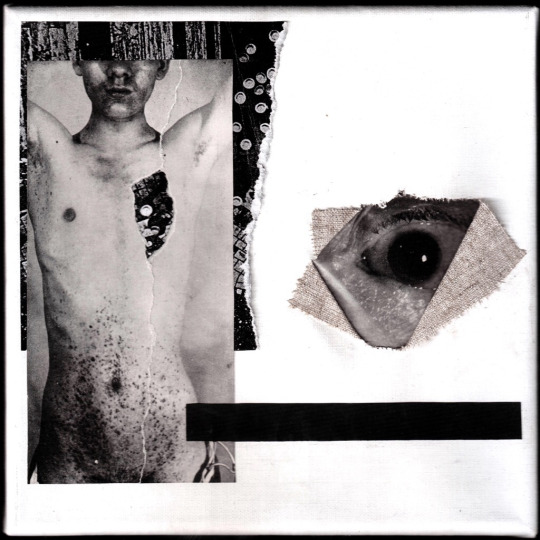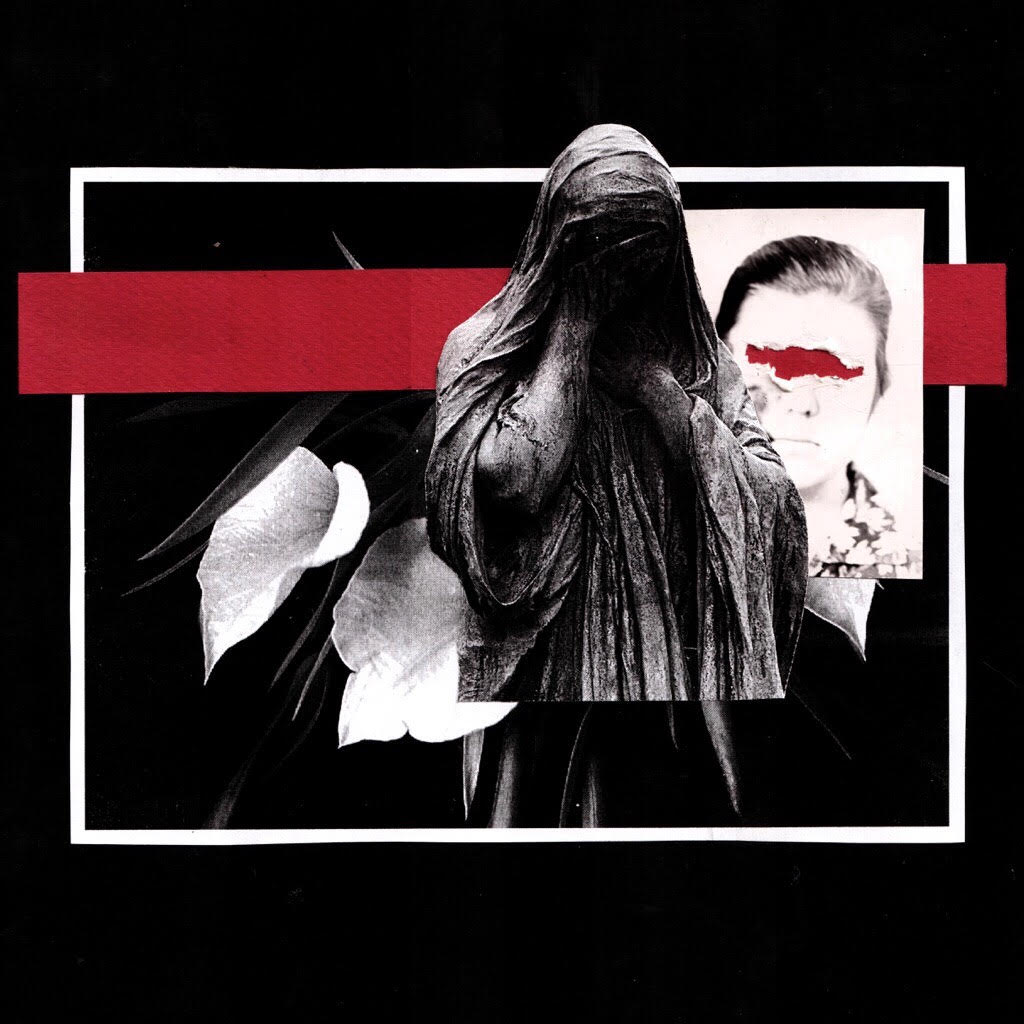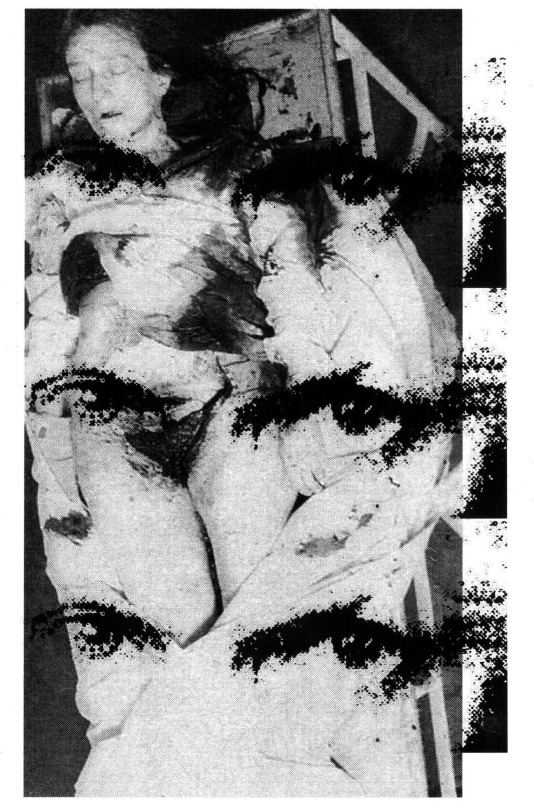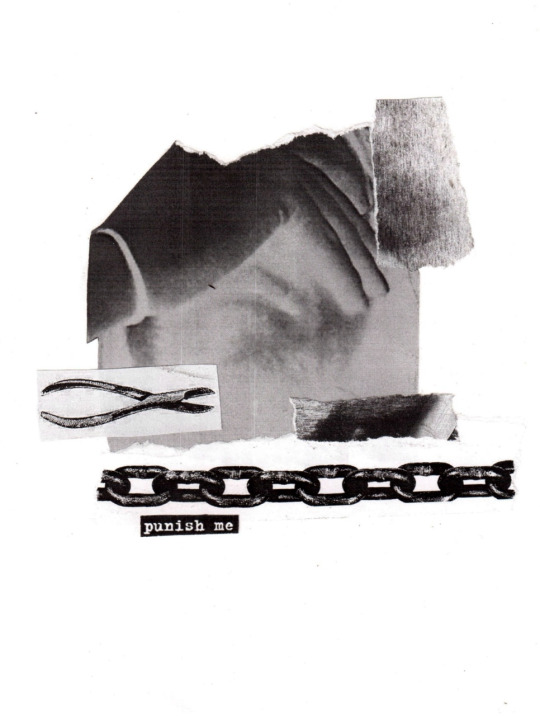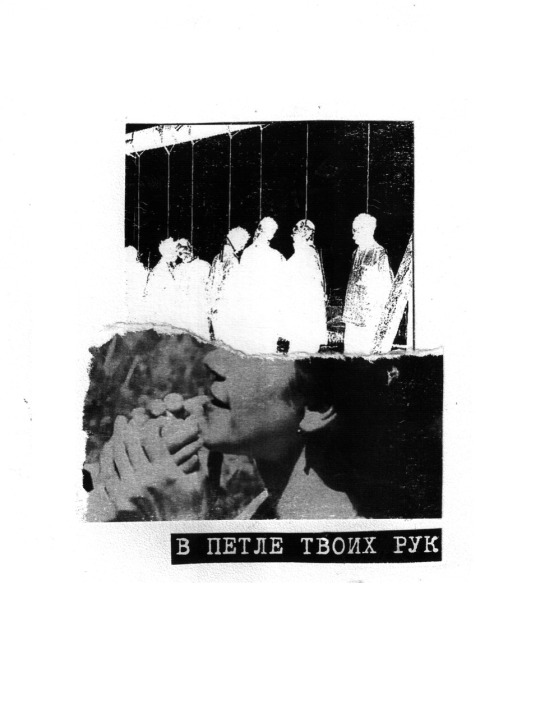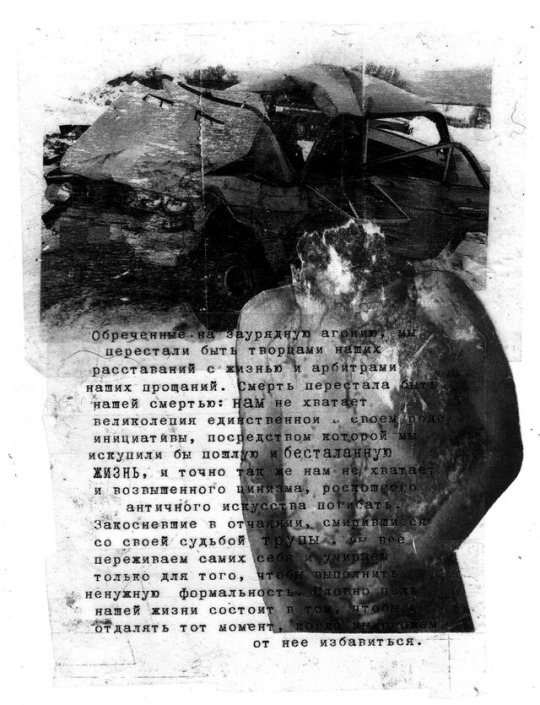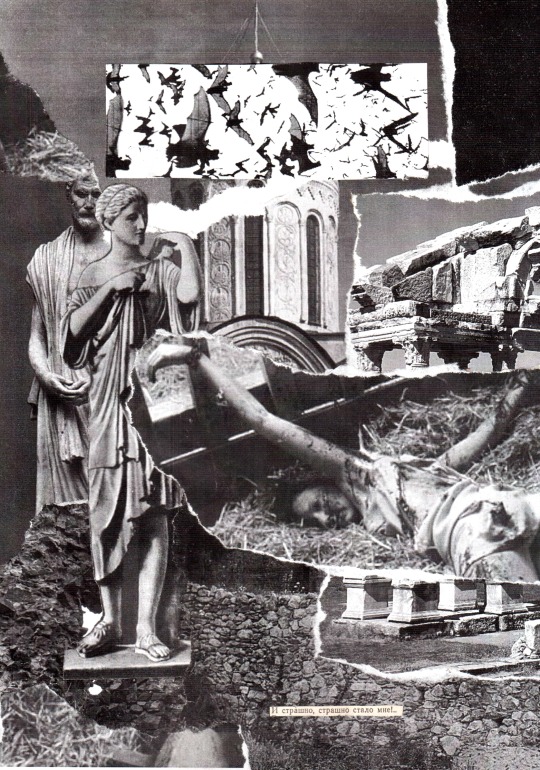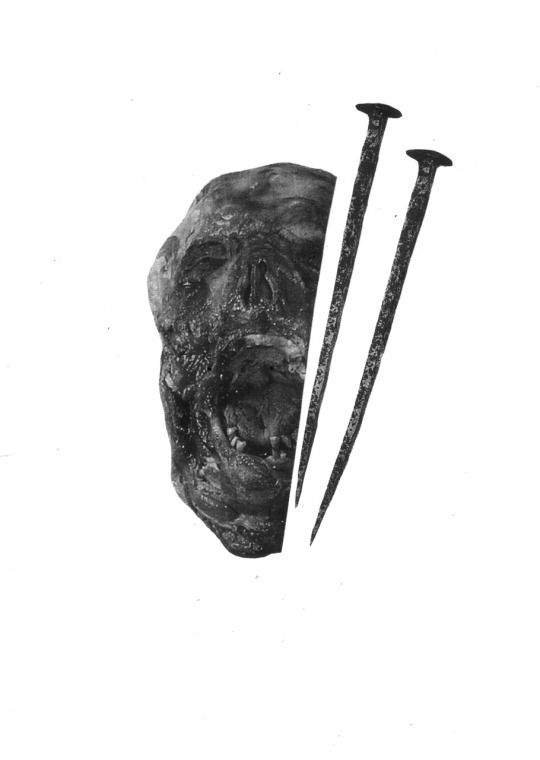“Universal existence, eternally unfinished and acephalic, a world like a bleeding wound, endlessly creating and destroying particular finite beings: it is in this sense that true universality is the death of God.”
Georges Bataille
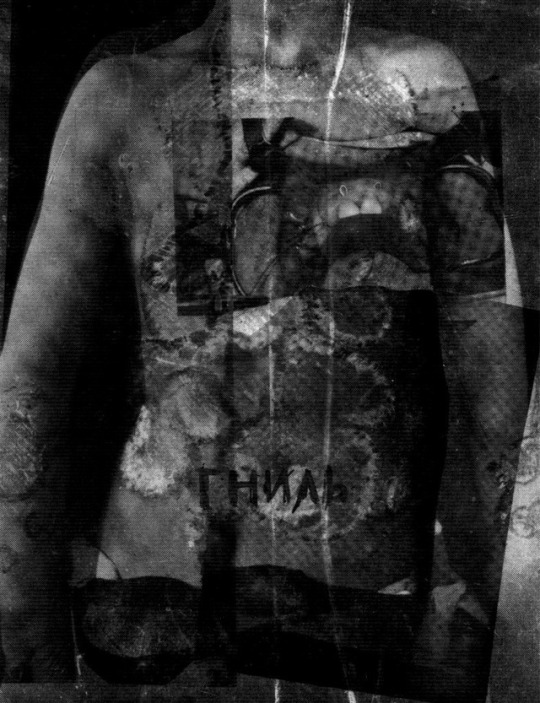 The haruspex were priests in Ancient Rome who knew the “art of observation of the victims’ innards”, and used it to speculate about the world and to predict the future. In our filthy, obscene and shameful haruspication practises through the observation of social media, we clearly have seen that there is something new taking shape. Yes, a new artistic wave. It shares style, medium and influences, and it expresses through dirty collages, mainly in black and white. The themes are shared too: pornography, necropsy, war, violence, totalitarianism, sacred images, anatomy. A visual daughter of the most extreme industrial sound, this new wave of necrophiliac collagists produces a disturbing, visceral and dangerous art, which we like very badly. The exponents are many, Lydia Lazarus, Ish Boshet, Quentin Rhys, Emily Roth, Carlos Davila, Jesse Smith, just to mention a few.
The haruspex were priests in Ancient Rome who knew the “art of observation of the victims’ innards”, and used it to speculate about the world and to predict the future. In our filthy, obscene and shameful haruspication practises through the observation of social media, we clearly have seen that there is something new taking shape. Yes, a new artistic wave. It shares style, medium and influences, and it expresses through dirty collages, mainly in black and white. The themes are shared too: pornography, necropsy, war, violence, totalitarianism, sacred images, anatomy. A visual daughter of the most extreme industrial sound, this new wave of necrophiliac collagists produces a disturbing, visceral and dangerous art, which we like very badly. The exponents are many, Lydia Lazarus, Ish Boshet, Quentin Rhys, Emily Roth, Carlos Davila, Jesse Smith, just to mention a few. 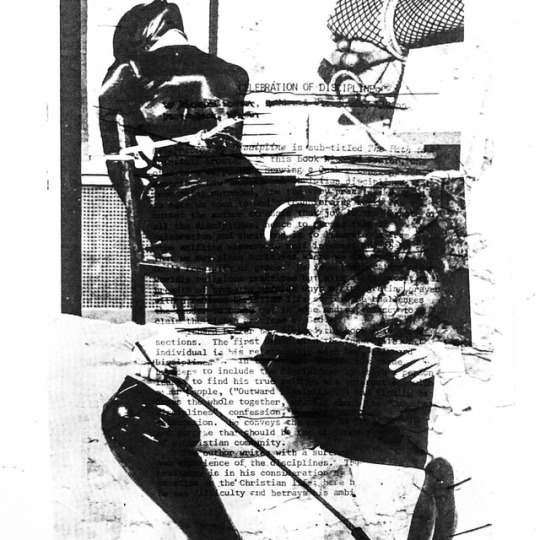
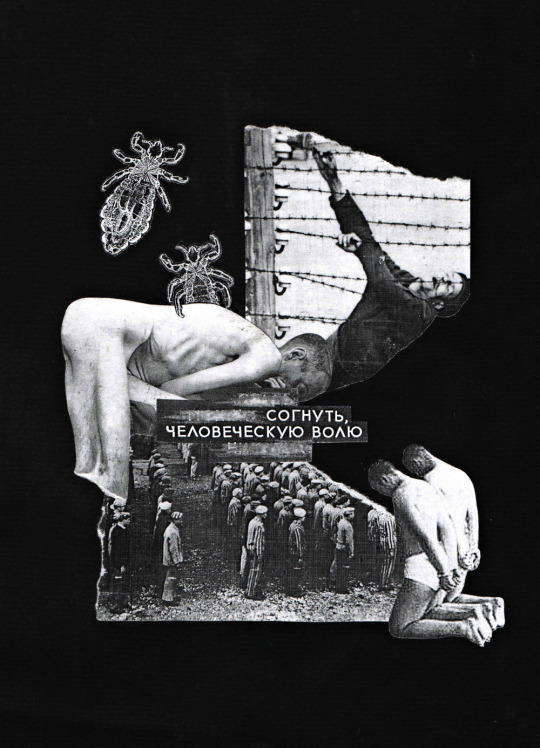
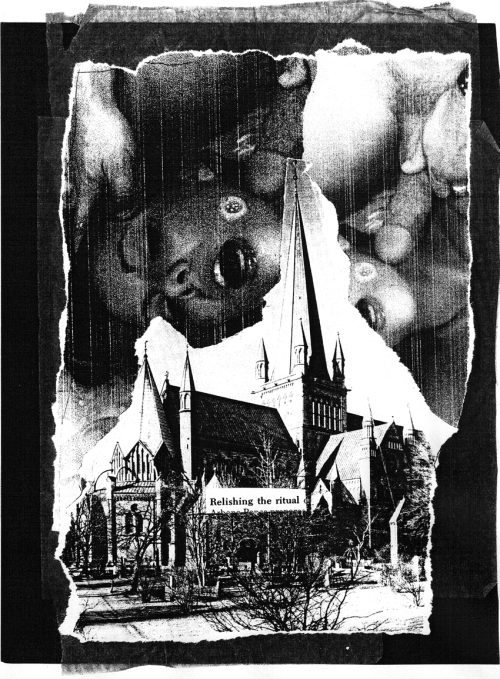
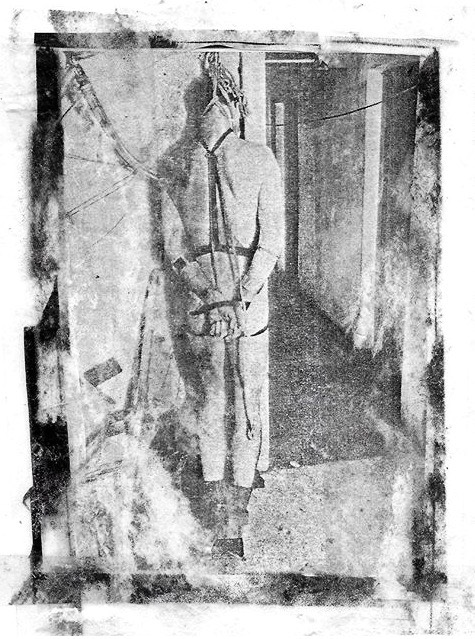
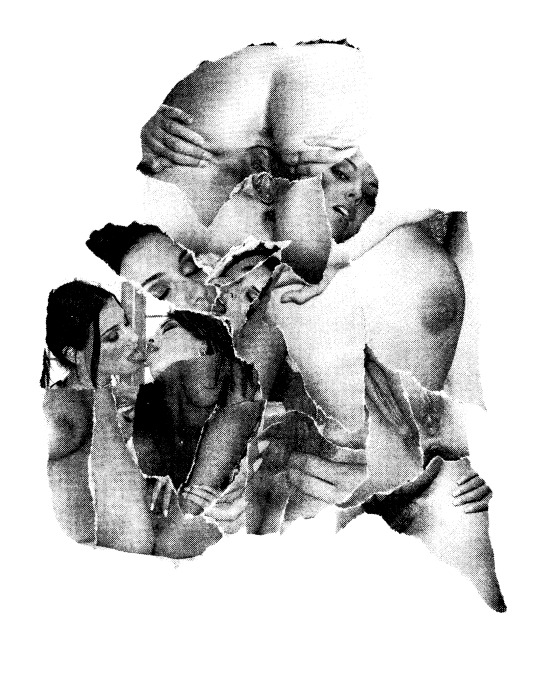
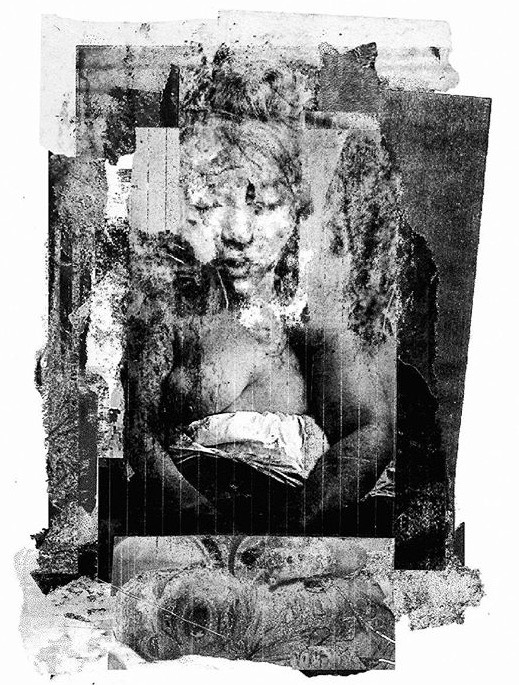
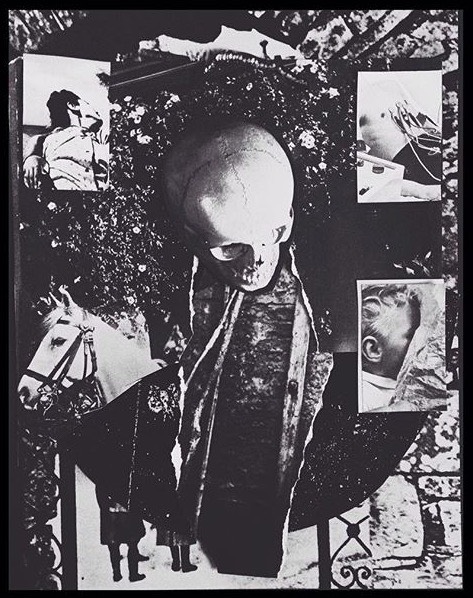 Among all, we choose to dedicate this article to Vnutrennosti, a Muscovite connected with us by strange affinities, of whom you will hardly find photos or personal information.
Among all, we choose to dedicate this article to Vnutrennosti, a Muscovite connected with us by strange affinities, of whom you will hardly find photos or personal information.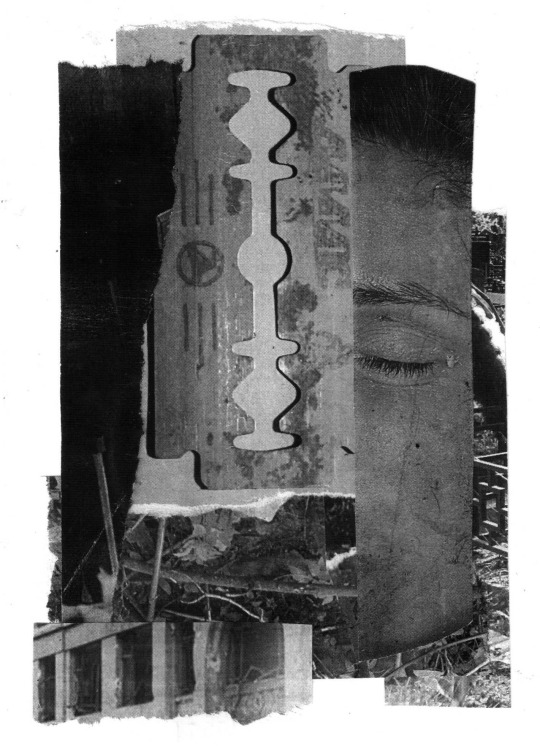
BODY
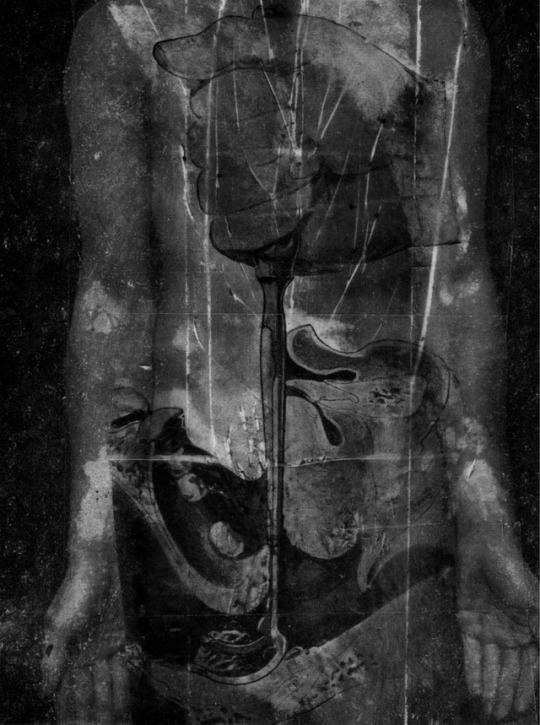 In Russian “vnutrennosti” means innards, what is inside, entrails. The inner of the body, its bloody and incredibly perfect mechanism, is a mystery that can’t be seen nor touched, except minimally, during the sexual act or during the sectorial practices of autopsy. The body is the focal point of Vnutrennosti’s poetics: the body without organs in particular, the one pushed to the limit by nature, which marks it with illness or tears it up by death.
In Russian “vnutrennosti” means innards, what is inside, entrails. The inner of the body, its bloody and incredibly perfect mechanism, is a mystery that can’t be seen nor touched, except minimally, during the sexual act or during the sectorial practices of autopsy. The body is the focal point of Vnutrennosti’s poetics: the body without organs in particular, the one pushed to the limit by nature, which marks it with illness or tears it up by death. 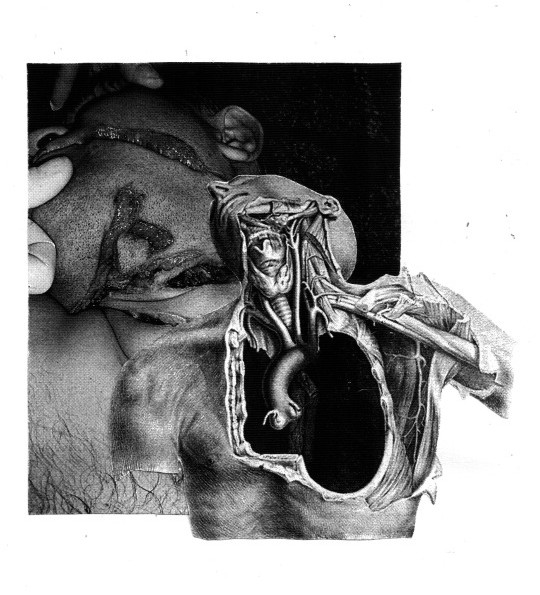
Vnutrennosti shows some pieces of this exploded body more than the others. These pieces are the liminal parts, the border zones between the inner part and the outside.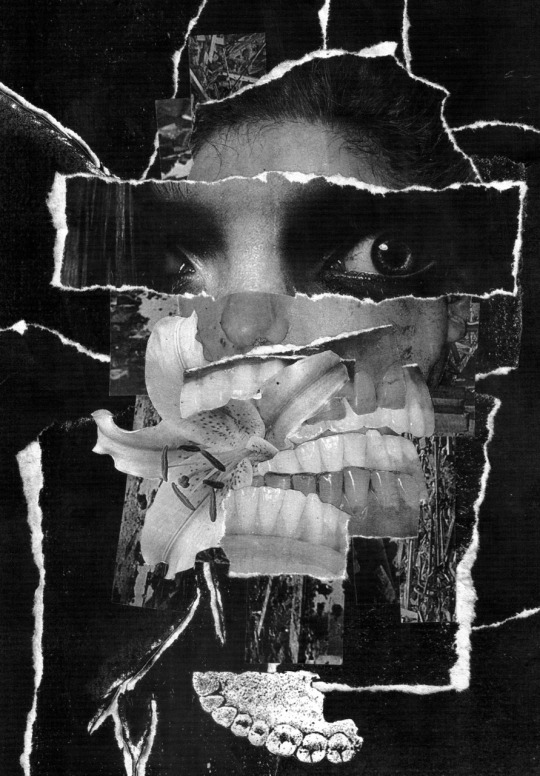
During the course of human life, the mouth is the first erogenous zone to be stimulated. Then, it regulates the exchanges between what is inside and what is external, it allows the feeding process and the communication through words.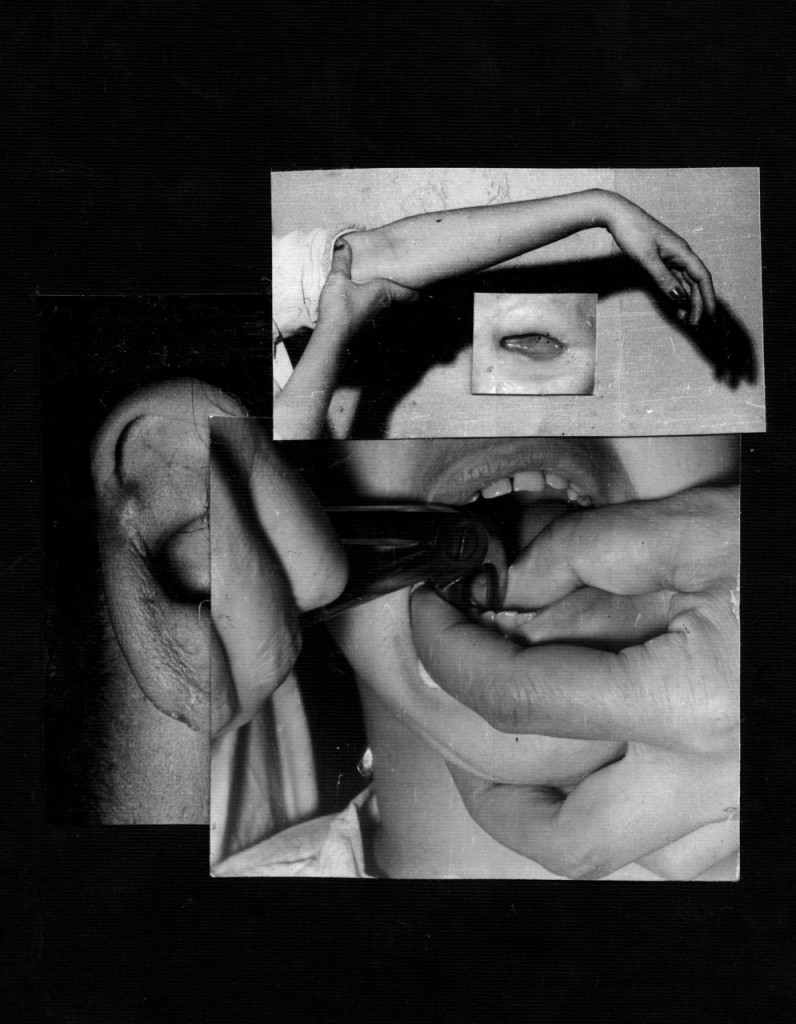
The teeth are bared to threaten, and to seduce with a smile. They are symbols of vitality, preying, sexuality.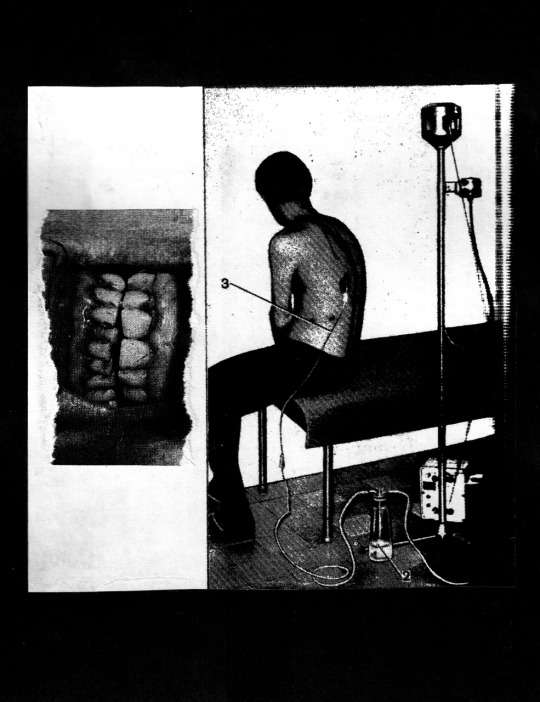
Many works are dedicated to the inimitable mechanical device of the hands, which is used to explore the outside, to touch and to kill.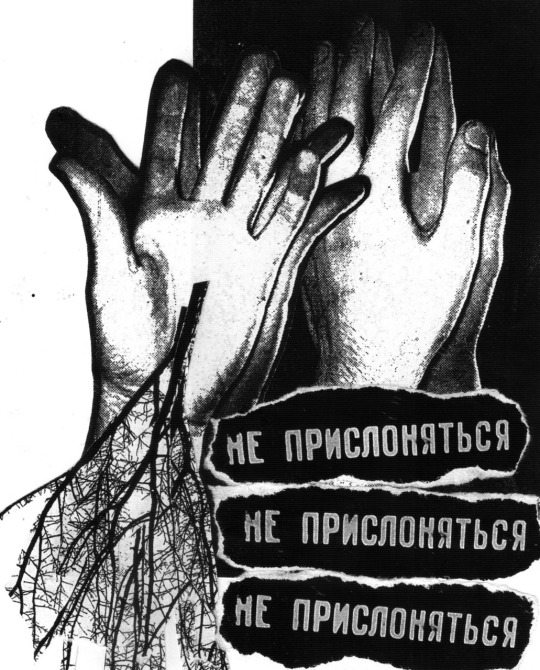
Suffering hands that embrace a ghost.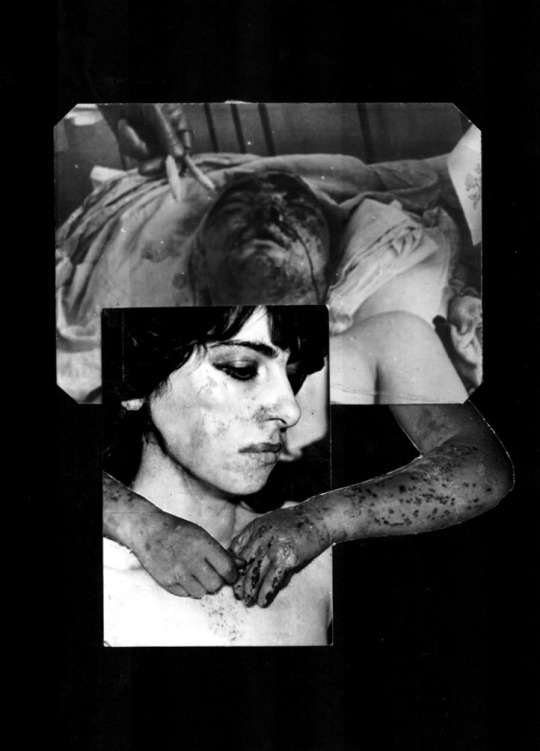
Hands disfigured by disease, that can’t be touched.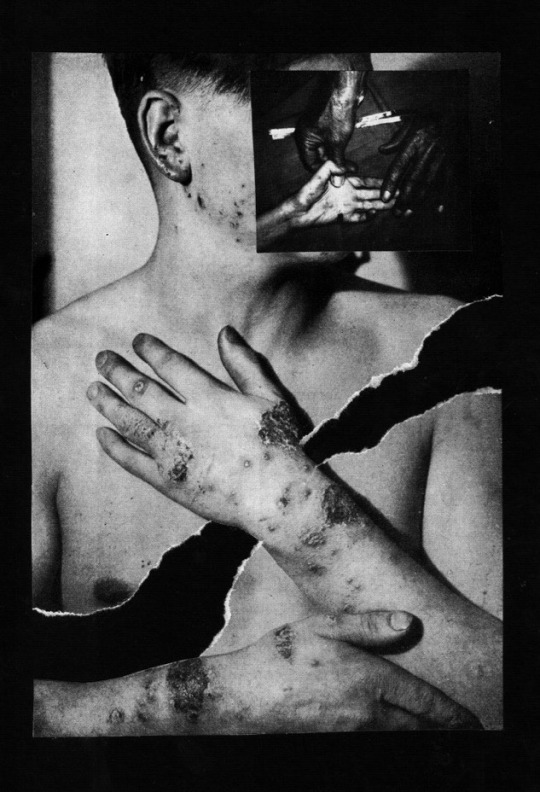
Hands crouched to the chest for a last time, in a tender and childish way, hands covering the head in a desperate gesture.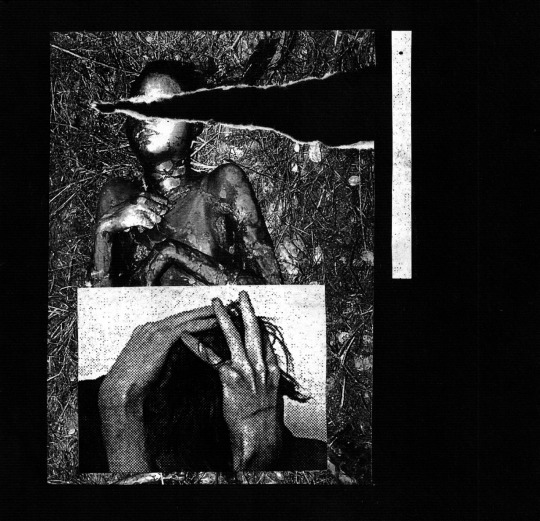
Hands with bandaged wrists living “an eternal spring in a solitary confinement”.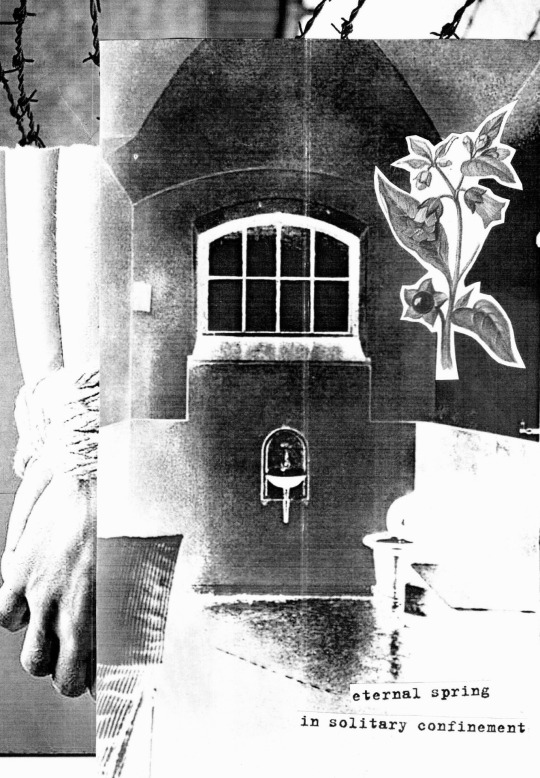
Joined hands in pray in front of a face butchered by a fatal blow, maybe of a gun. Nevertheless, this face is still beautiful.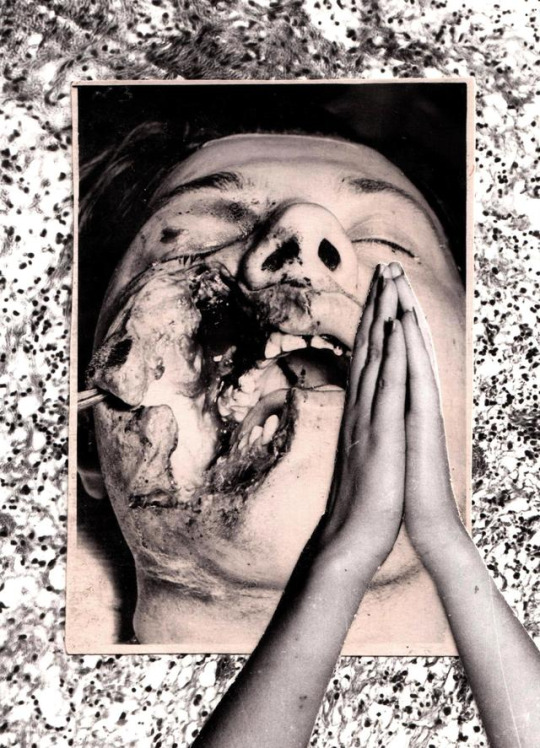
Vnutrennosti represents the body parts in a tragic way, all of them, especially the eyes. 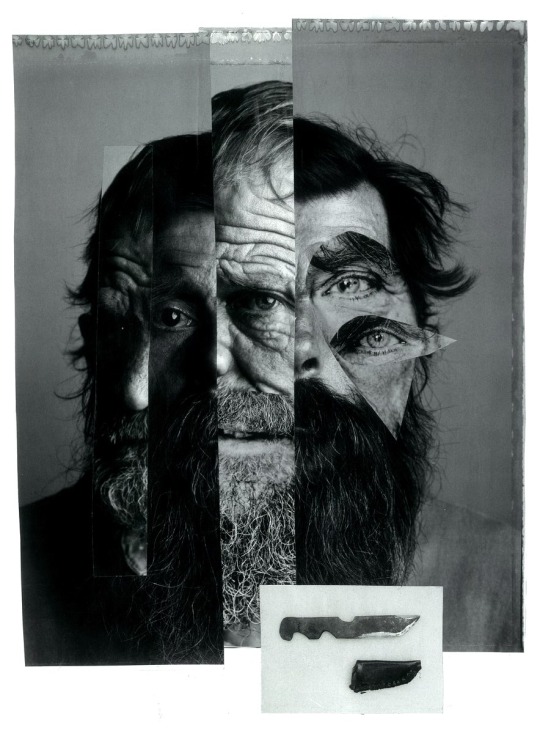 They are often sutured, by surgical stitches or metallic stamples affixed on the collage.
They are often sutured, by surgical stitches or metallic stamples affixed on the collage.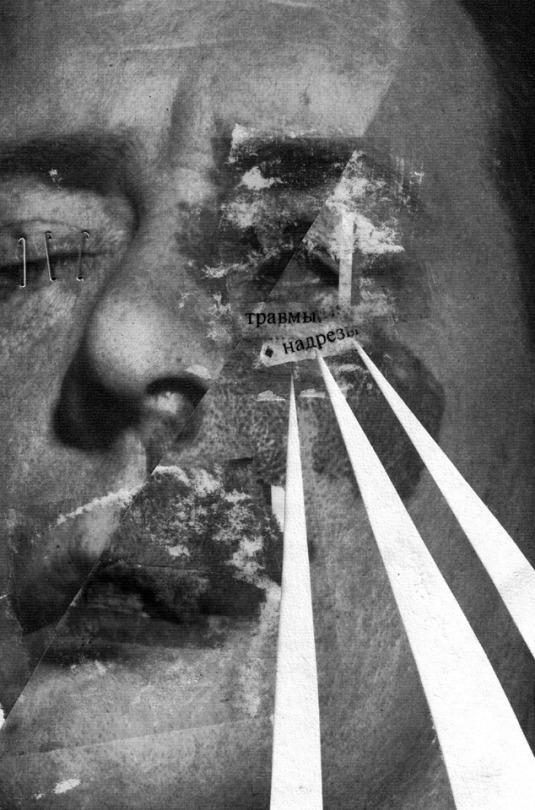 Sometimes they are sick or disfigured by traumas.
Sometimes they are sick or disfigured by traumas. 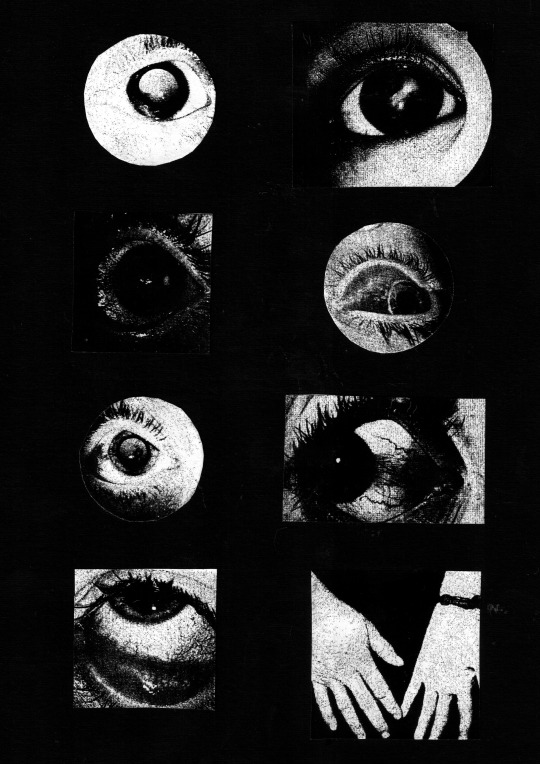 In some works, eyes are placed in the centre of the chest, like a heart.
In some works, eyes are placed in the centre of the chest, like a heart. 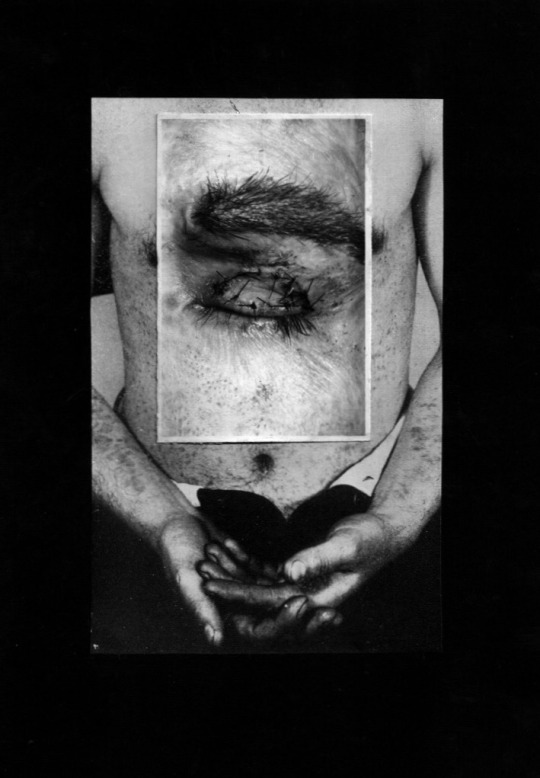 The heart is the centre of our being, from which all our desires unravel. All desires, and what come from them: love, illusion, reject, delusion, hate.
The heart is the centre of our being, from which all our desires unravel. All desires, and what come from them: love, illusion, reject, delusion, hate.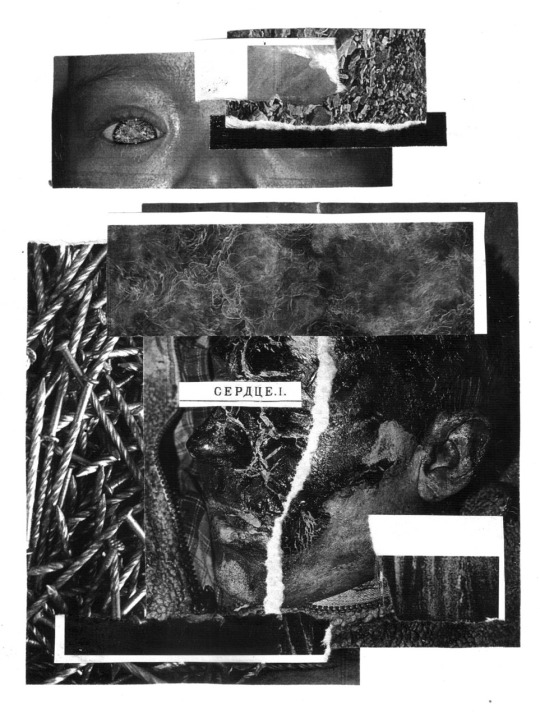
VIOLATE
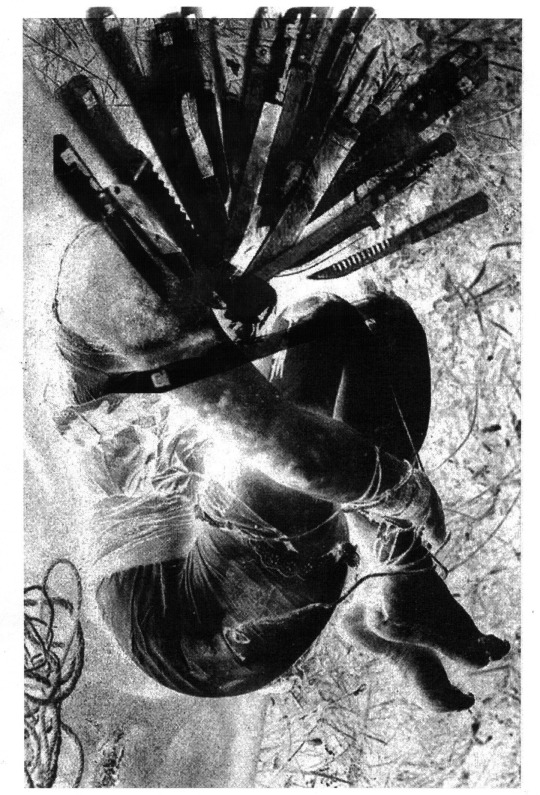 Bodies are living objects dogmatically closed, with the exception of the mouth, female genitals, anus, ears, nostrils and eyes. Vnutrennosti shows taboo zones of the visible, like illness, death, the opening of the body. For these reasons, surgical tools and dilators, used to open and violate the bodies, have a great importance in his work.
Bodies are living objects dogmatically closed, with the exception of the mouth, female genitals, anus, ears, nostrils and eyes. Vnutrennosti shows taboo zones of the visible, like illness, death, the opening of the body. For these reasons, surgical tools and dilators, used to open and violate the bodies, have a great importance in his work. 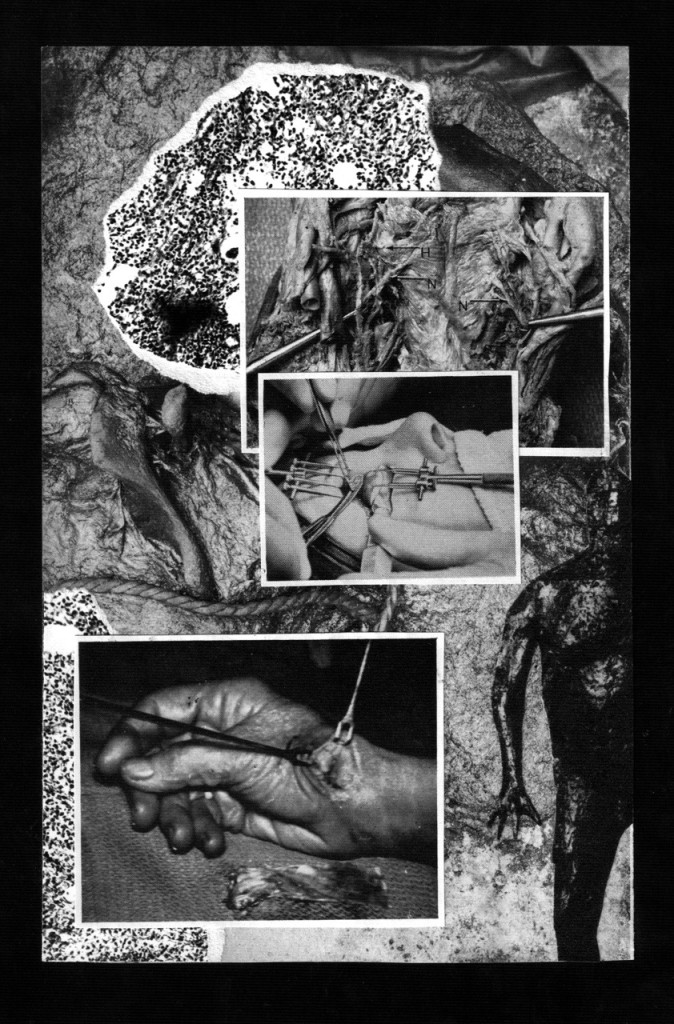 These tools are used to penetrate inside the wounds.
These tools are used to penetrate inside the wounds. 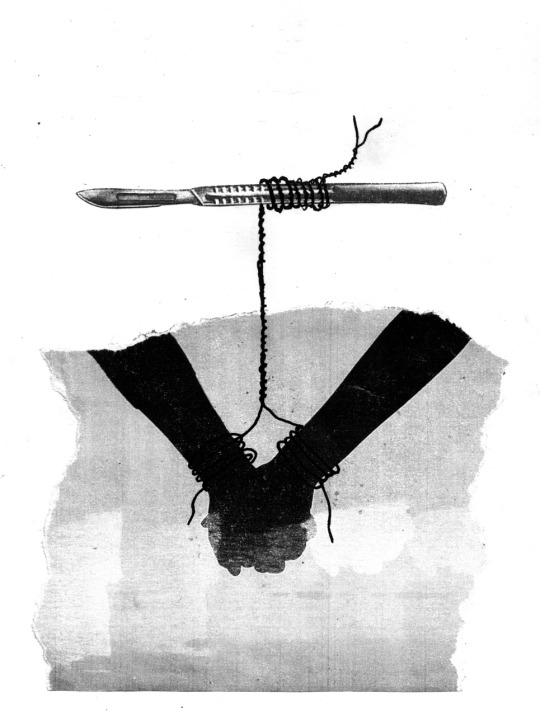 French writers say that the wound is the source of our strength. In the runic system, the rune number 6, Kenaz, represents the wound and also the torch. It’s the purifying fever, which give us the awareness about the world and which guide us for better or for worse.
French writers say that the wound is the source of our strength. In the runic system, the rune number 6, Kenaz, represents the wound and also the torch. It’s the purifying fever, which give us the awareness about the world and which guide us for better or for worse.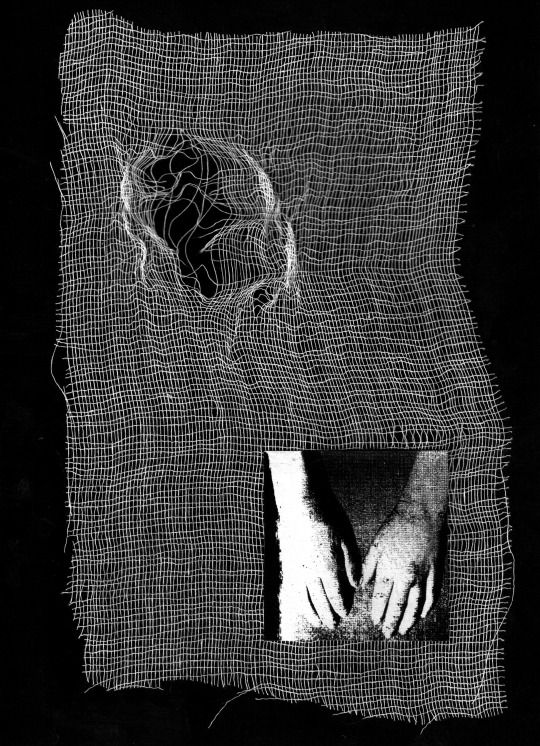
SICKNESS
“Sick, I knew very well that if I were healed by a miracle, I would not survive. The miracle is unclean.”
Jean Genet, Notre-Dame-des-Fleurs
Sickness is an exceptional condition. It can be congenital, inoculate itself by infection, irradiation, or develop after some deficiency. The sick body have to be isolated, because the pain it feels is incommunicable, and contaminating to the eyes of healthy people. Sickness is a permanent condition, you cannot be healed, and you don’t have to. “The cure is Delirium.” (Coil Manifesto)
Antonin Artaud says that curing a disease is a crime, because the disease is a medal to wear with pride.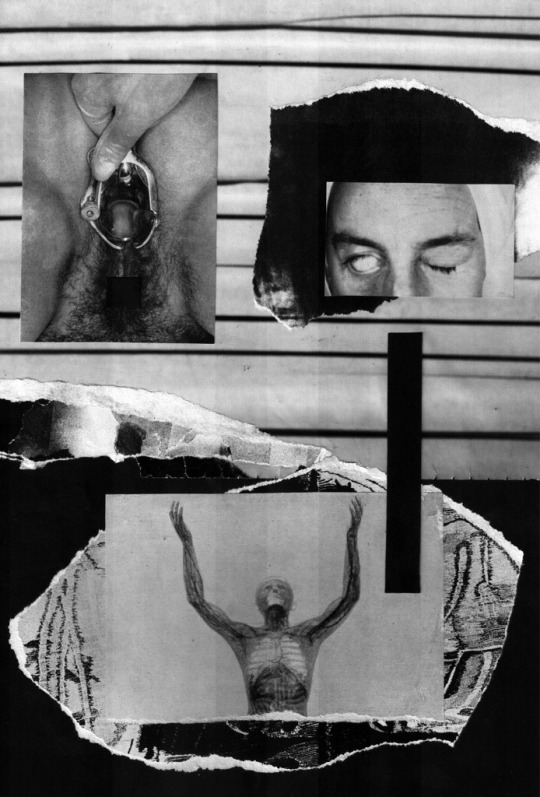
Vnutrennosti dedicates many collages to mental disease, to the delirium of the one who knows that the “rats in the wall are waiting for a sign to attack the veins” causing the death, or the one who self-mutitates in order to sedate anguish.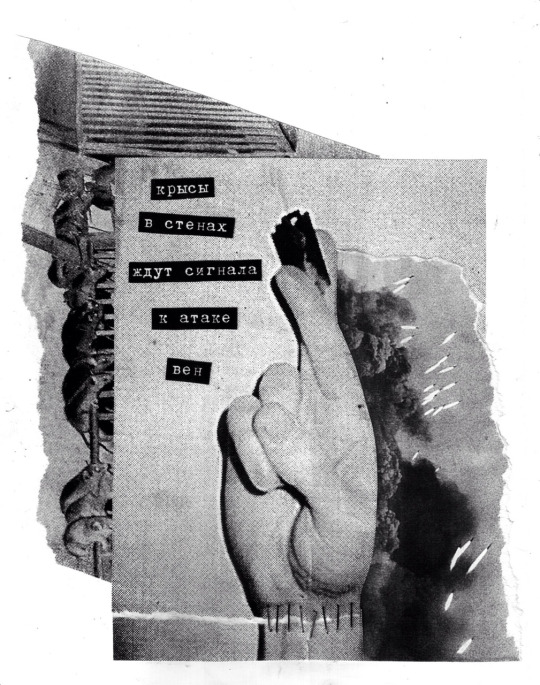
One work represents the procedure of lobotomy, a method used in the civilized Western World as so-called cure for depression, bipolar disorder and schizophrenia. This operation was performed to damage the prefrontal cortex, compromising all the activities involved with free will, planning and visualization of consequences. It caused incontinence, inability to make decisions, resetting of any emotive intensity, infantile regression, epilepsy, vegetation. The history of this practise starts in Switzerland, in the Nineteenth Century, with experiments on anonymous psychiatric patients, and some of them obviously died. Antonio Egas Moniz, the doctor who perfected lobotomy in the Thirties and who was honoured with the Nobel Prize for Medicine, used to drill the cranium of his patients with thin picks. Then, in order to destroy the white substance of prefrontal lobes, he injected alcohol in the holes. The serial killer Jeffrey Dahmer did the same to his victims, trying to force them to stay with him. The lobotomy practice was imported then in America, and improved by Walter Jackson Freeman II. He was able to reach the prefrontal lobes through tear ducts with a surgical pick, called orbitoclast. In this way, lobotomy could be performed in day surgery, in a few minutes. Freeman operated it on thousands people. Rather than a cure, lobotomy was a method of social control against the undesiderables, especially women, as the story of the actress Frances Farmer has told.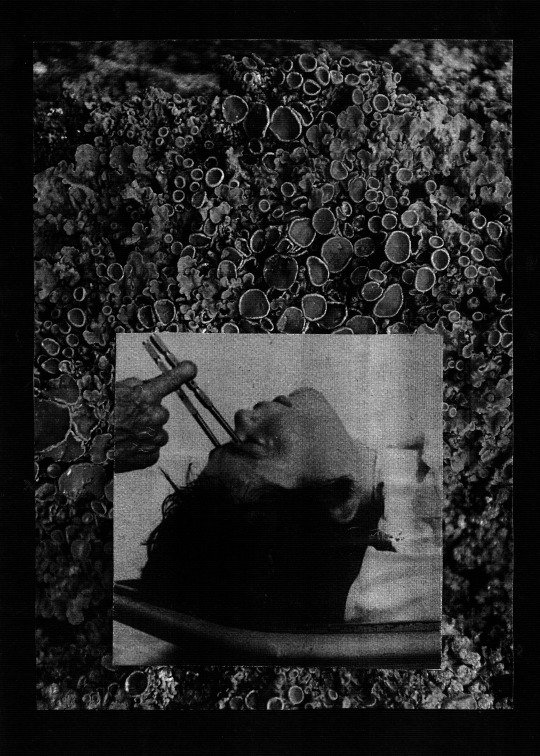
SACREDNESS
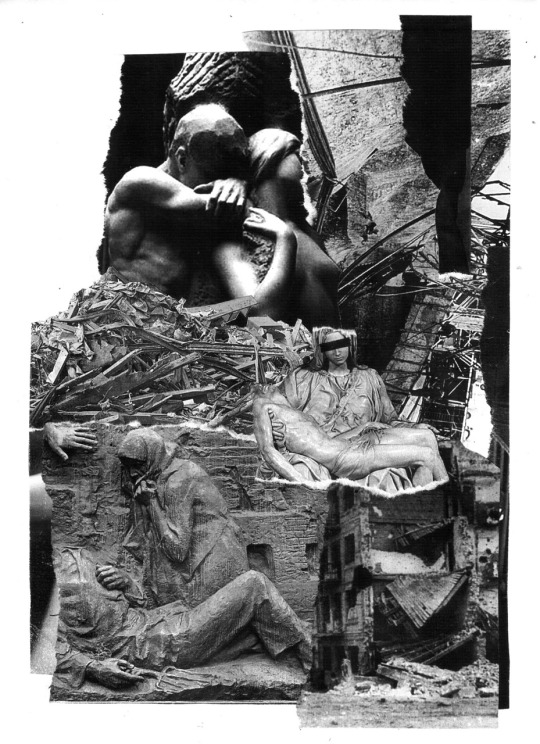 The mutilated and suffering bodies of Vnutrennosti are often represented in sacral poses, in accordance with the most strong and everlasting visual tradition of Christian culture. After the twelve stations of Golgotha, the torn body offers itself as the constitutive show of our civilization, the most worthy to be seen, represented and reproduced live.
The mutilated and suffering bodies of Vnutrennosti are often represented in sacral poses, in accordance with the most strong and everlasting visual tradition of Christian culture. After the twelve stations of Golgotha, the torn body offers itself as the constitutive show of our civilization, the most worthy to be seen, represented and reproduced live.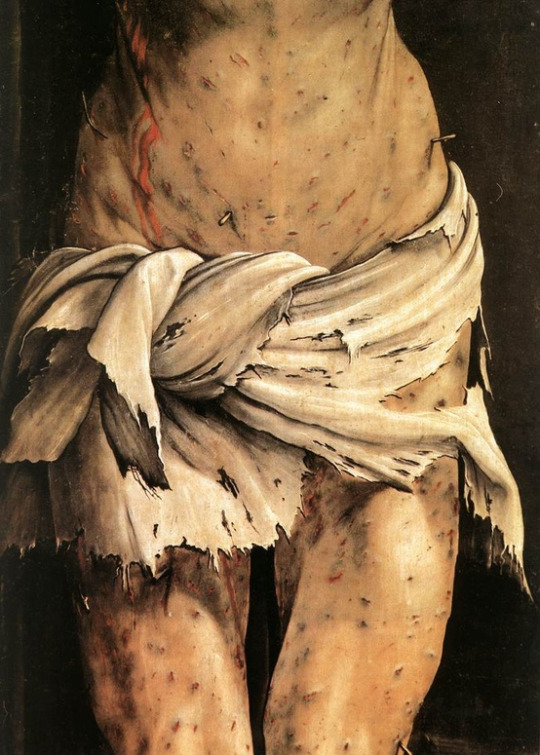
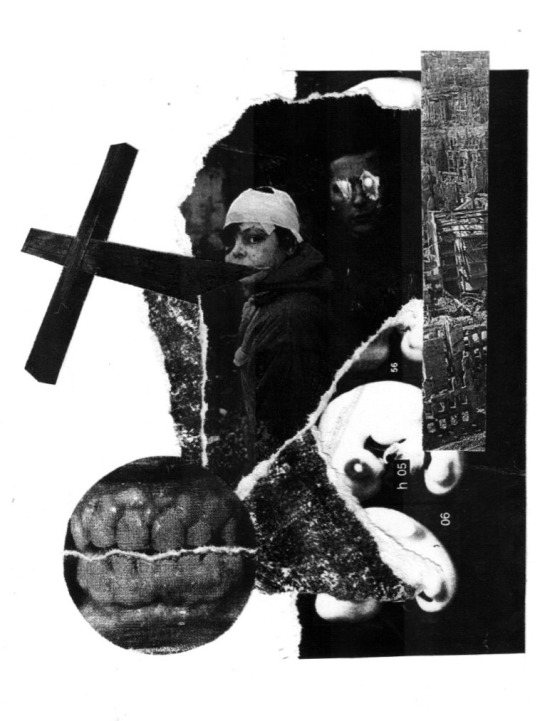 A man with extended burns brings to his hands to his chest in the same gesture of Sacred Heart’s depictions. Flowers come out from his wound.
A man with extended burns brings to his hands to his chest in the same gesture of Sacred Heart’s depictions. Flowers come out from his wound.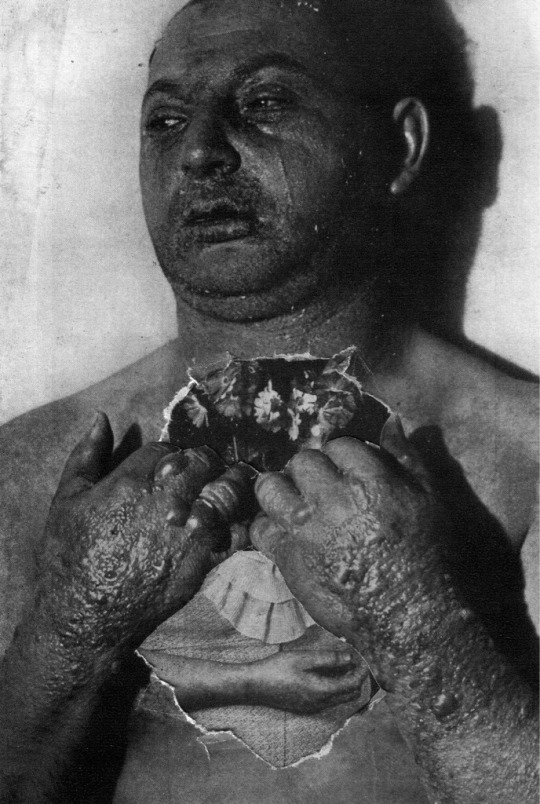
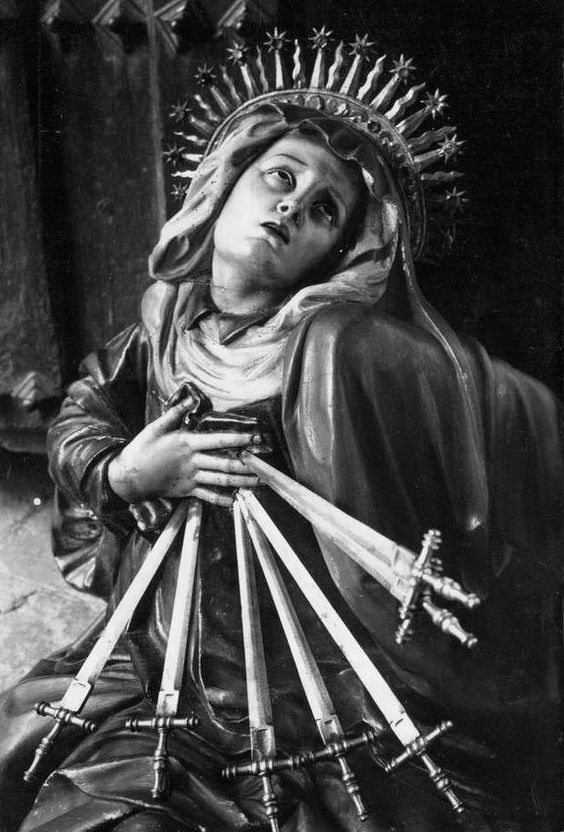
Wounded hands and feet refer to the image of stigmata.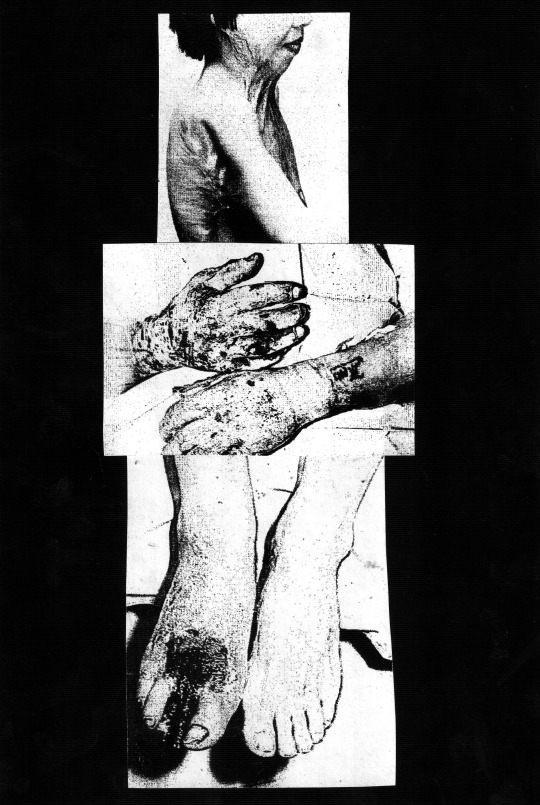
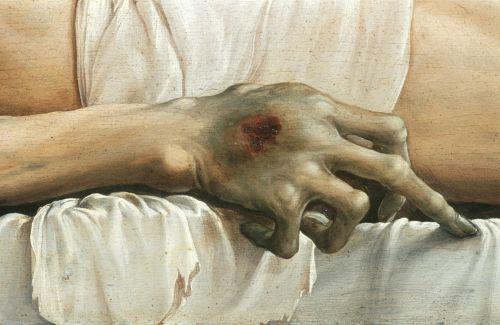
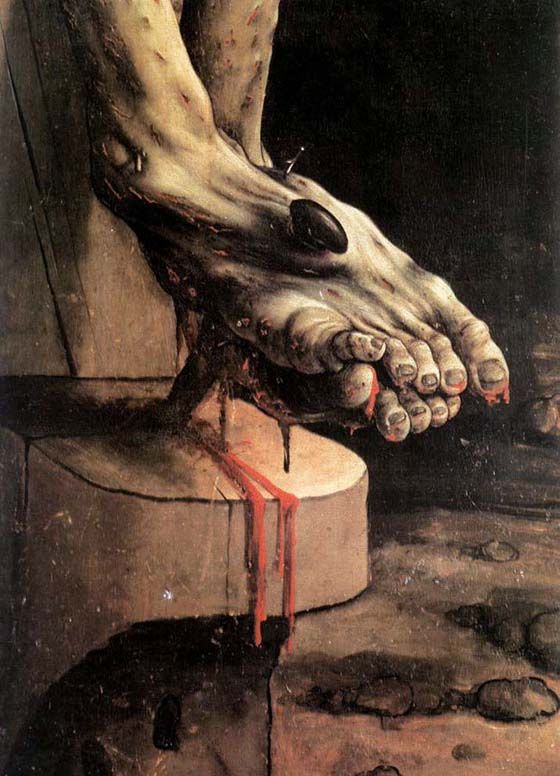
There are bandaged bodies, like saints or kings in their holy shrouds and gauzes with balm.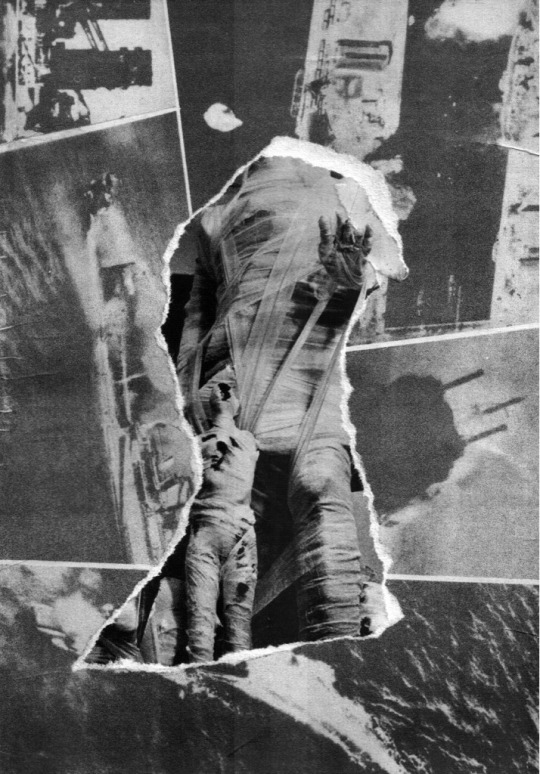
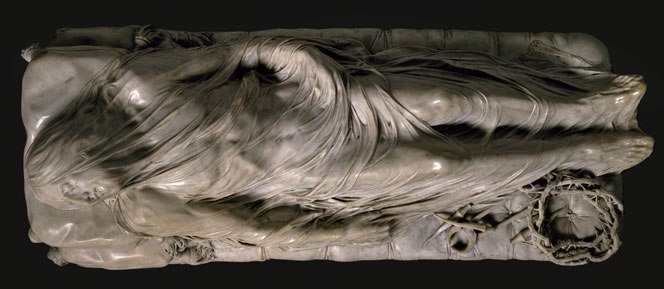
The torment of the body is the generative fire of the western history of art. But this dogma has its paradoxical implication: even though the christological myth states that pain is sacred, in real life sorrow is seen as an unclean, contaminating thing, to be relegated far from the view and to keep at a distance. The real disease is pain itself.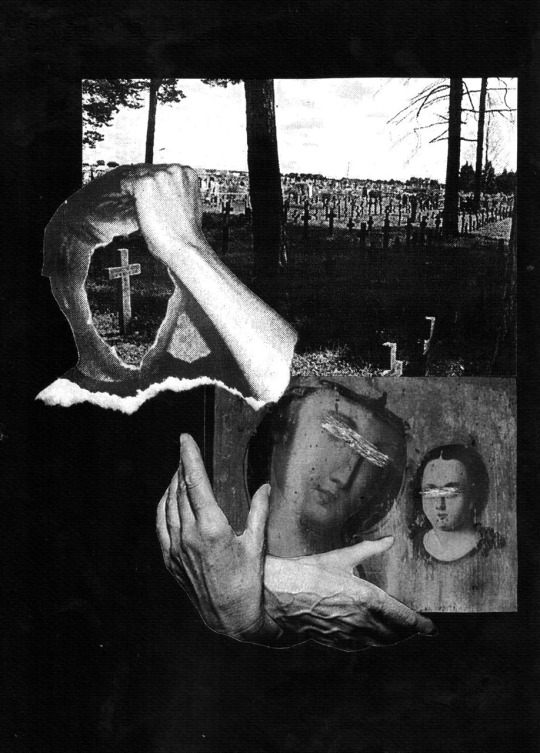
KILLERS
Vnutrennosti is born in the necrotic womb of the power electronics aesthetics. He is bond to it by the black and white collage technique, the representation of extreme bodies and the quotations of mass murders. 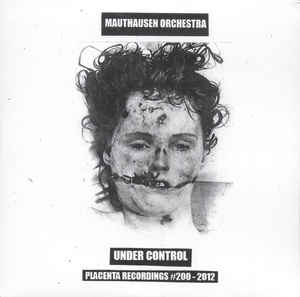

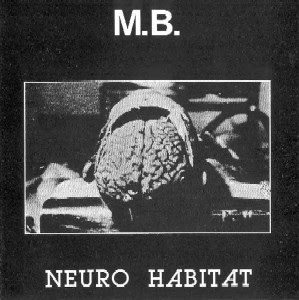

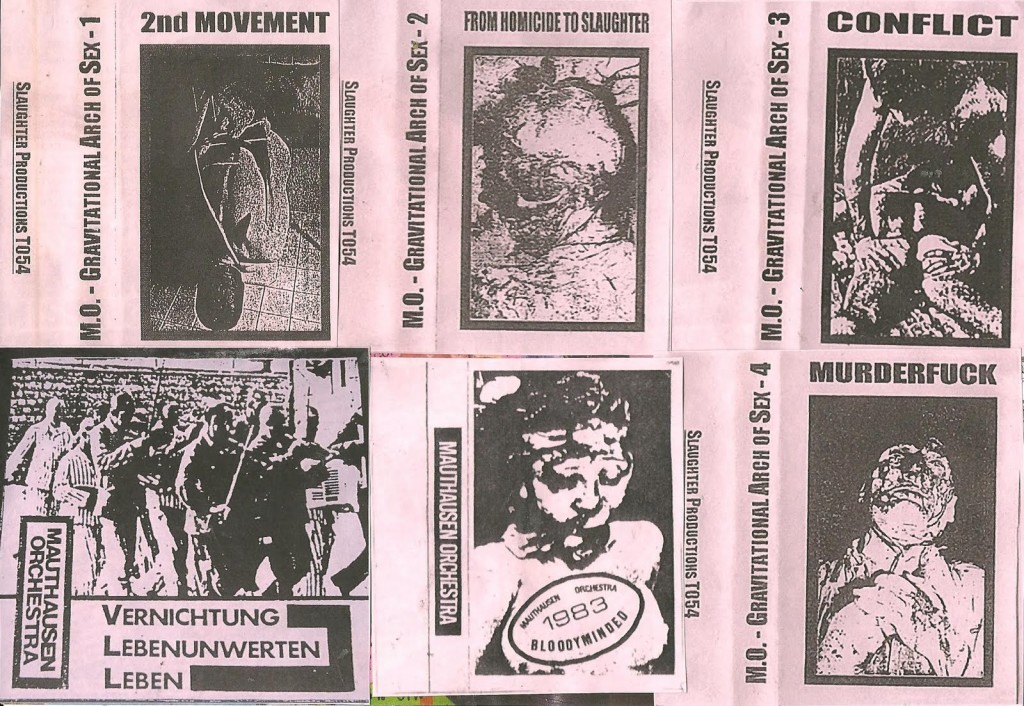
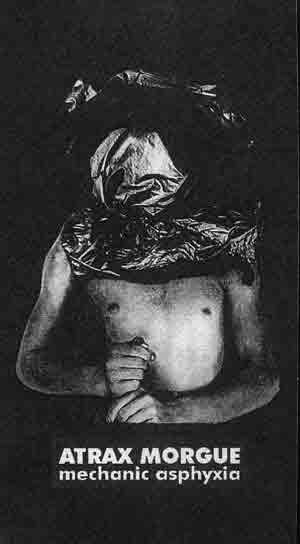
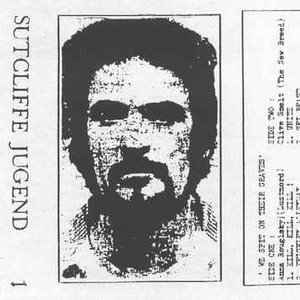 A scratched slab reminds the X-Rays of Albert Fish’s pelvis. Fish was an infanticide serial killer, and a piquerism lover.
A scratched slab reminds the X-Rays of Albert Fish’s pelvis. Fish was an infanticide serial killer, and a piquerism lover. 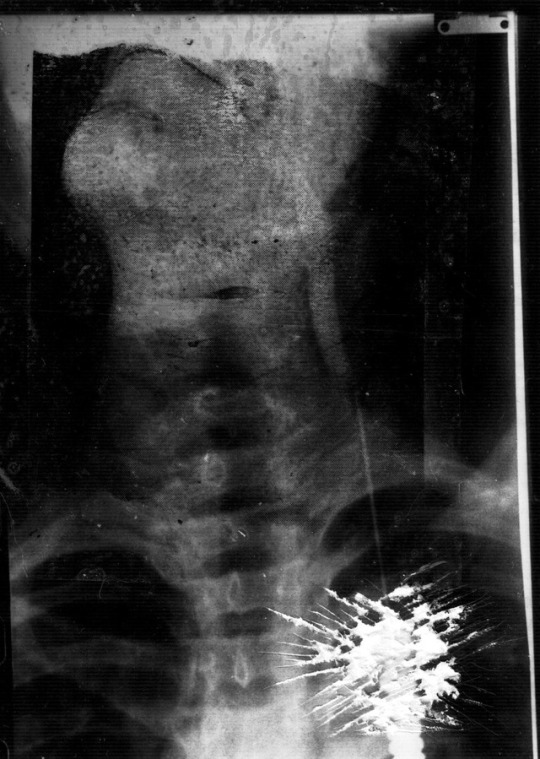 He used to pierce his down below with needles, and many of them got lost, adapting to his body.
He used to pierce his down below with needles, and many of them got lost, adapting to his body. 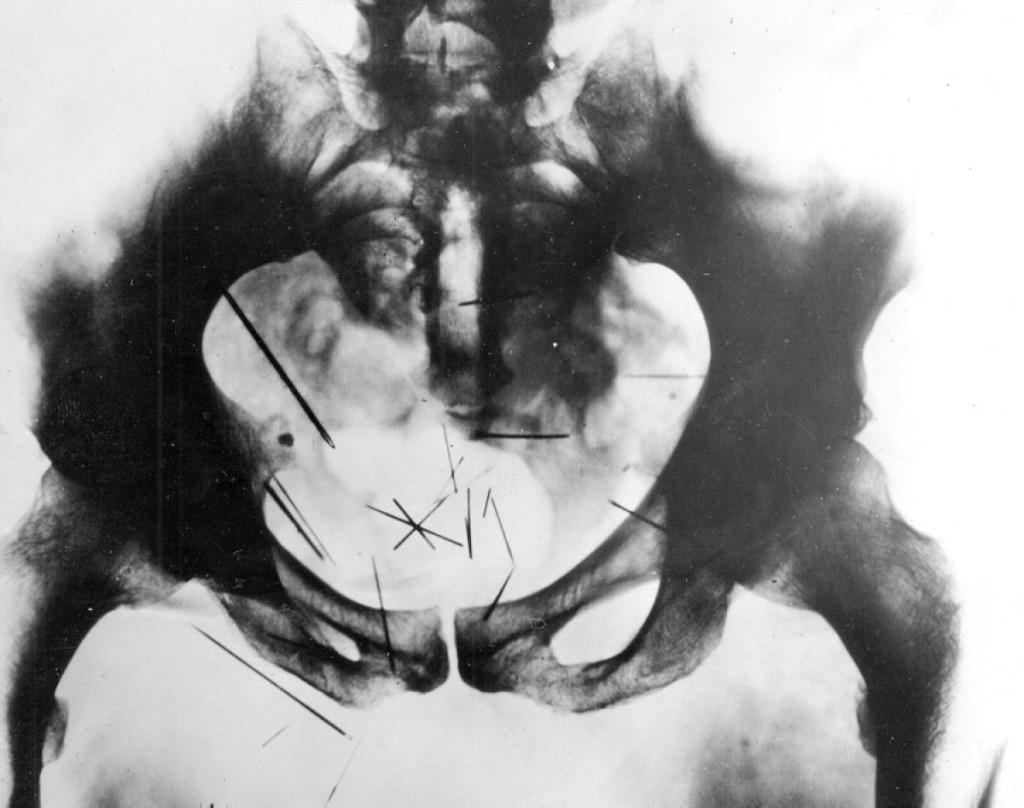 Another reference to the serial killer mythology is the writing “PIG”, that the Manson Family used to trace with the victims’ blood on their murder scene.
Another reference to the serial killer mythology is the writing “PIG”, that the Manson Family used to trace with the victims’ blood on their murder scene. 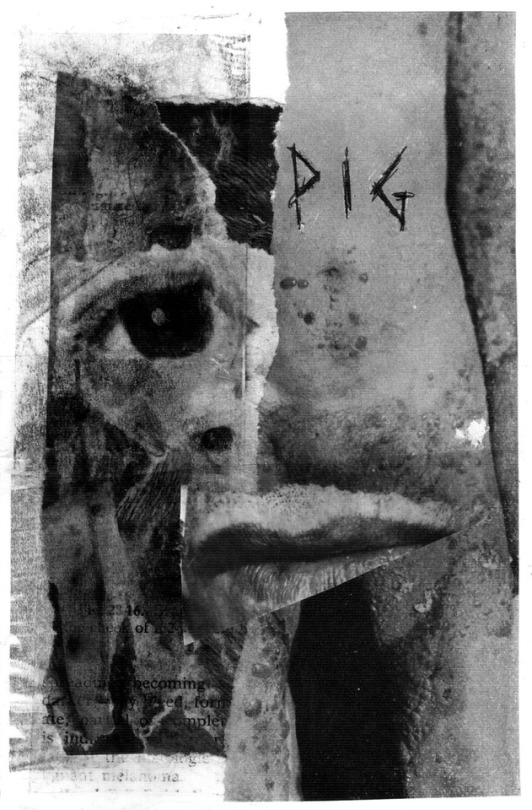 The song Piggies from the Beatles’ White Album inspired Manson to enrich the neo-language of his cult. The word PIG was perfect to bespeak potential victims.
The song Piggies from the Beatles’ White Album inspired Manson to enrich the neo-language of his cult. The word PIG was perfect to bespeak potential victims.
Black and white purifies and dirties, at the same time. It purifies from the gore of dark brown, jaundiced ivory, livid blue and red of the sick or open body. It dirties for the grain, which is big, like in collages of the early power electronics artworks, made with photocopiers.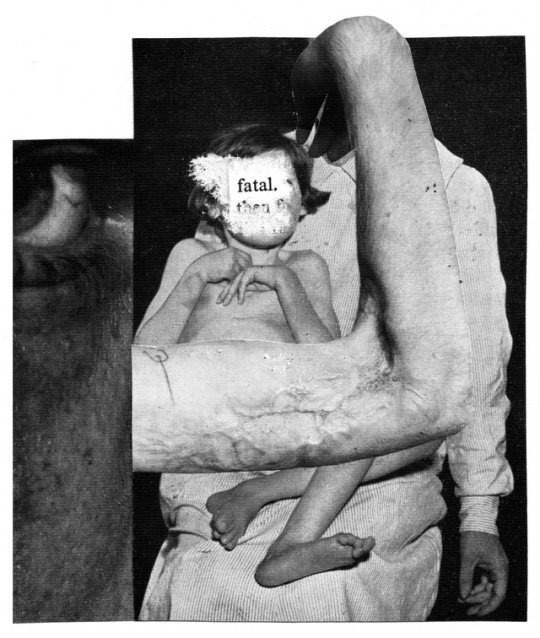
CARNAGE AND POETRY
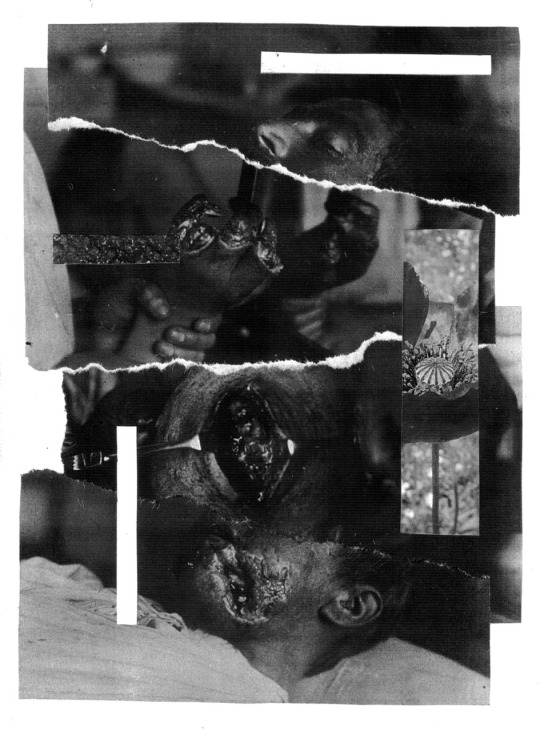 Sometimes the bodies are mixed in a dirty carnage, of burns, skin diseases, blood-stained teeth.
Sometimes the bodies are mixed in a dirty carnage, of burns, skin diseases, blood-stained teeth.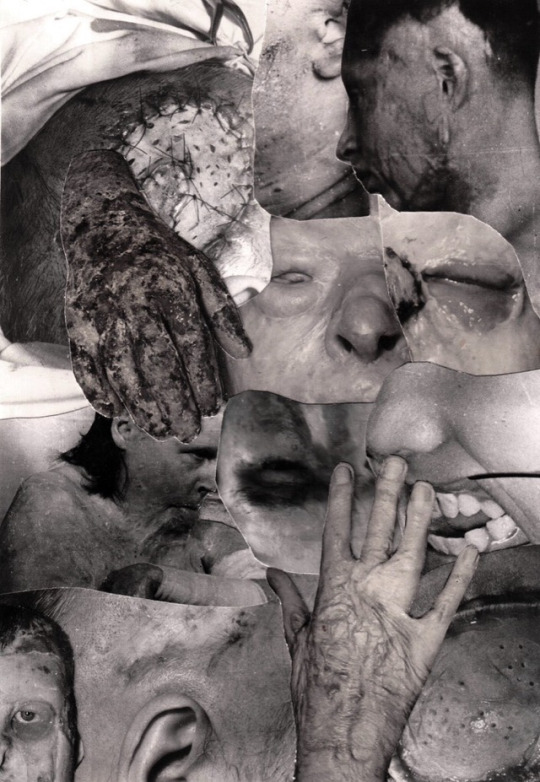
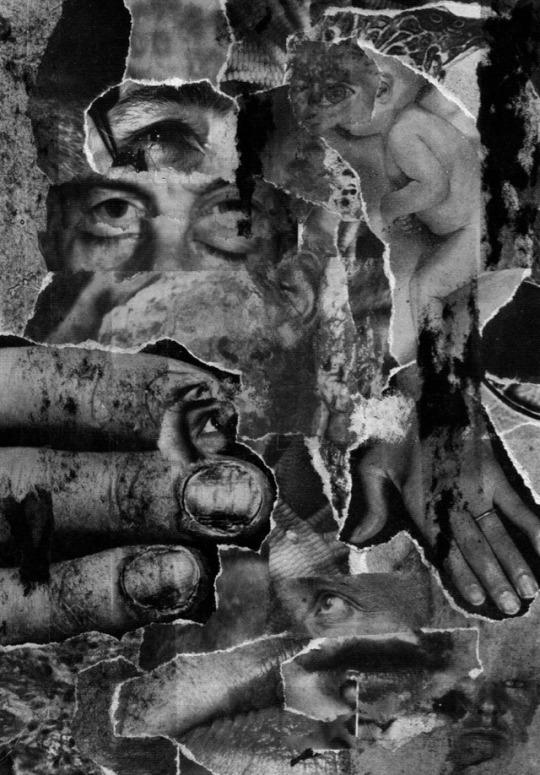
Other times, they form instead complex and delicate visual poetries, by juxtaposition.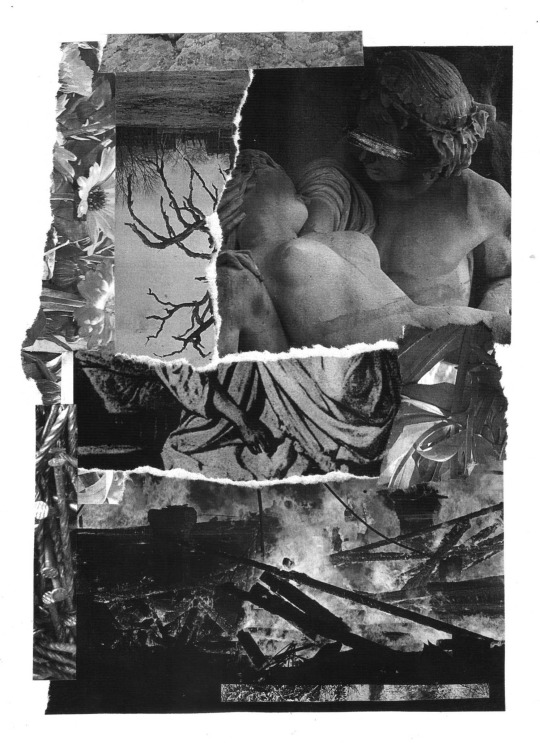
Flowers, crumbling buildings, Renassaince paintings with Adam and Eve, thorny trunks, barbed wire, fires: something begins, in a tender and dangerous way.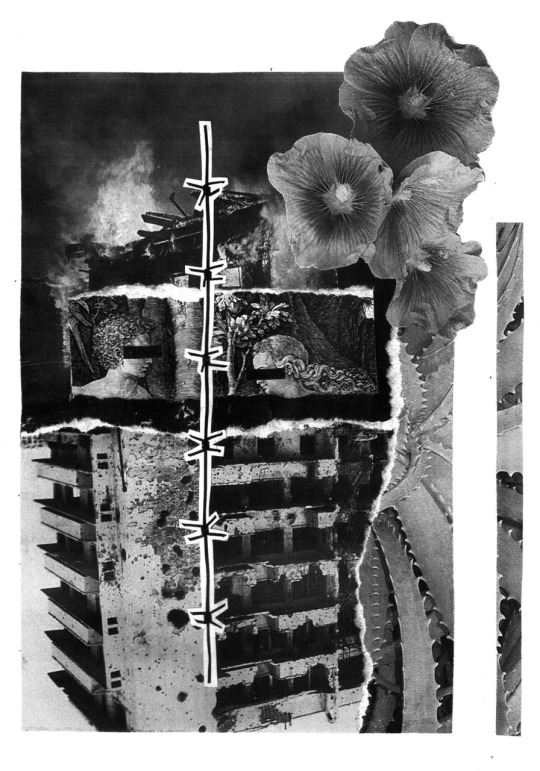
A lady sniffing a flower, the vampire’s shadow, a big tree in a forest, a circumscribed, cut scene of male sexual submission, Dresden’s debris razed to the ground. This work seems to depict a destructive love tale.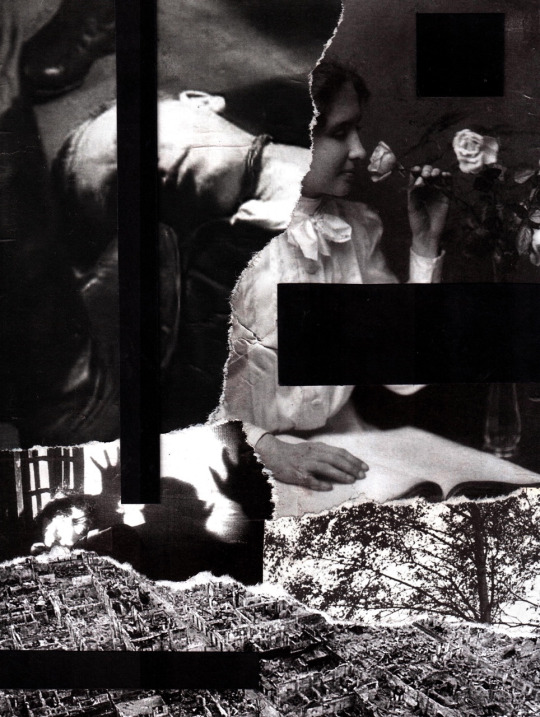
Chains, predators baring their teeth, hog-tied boys, a feminine torso with a teared-off arm, speak about mimetic bonds, with victims turning into oppressors, perpetuating the circle.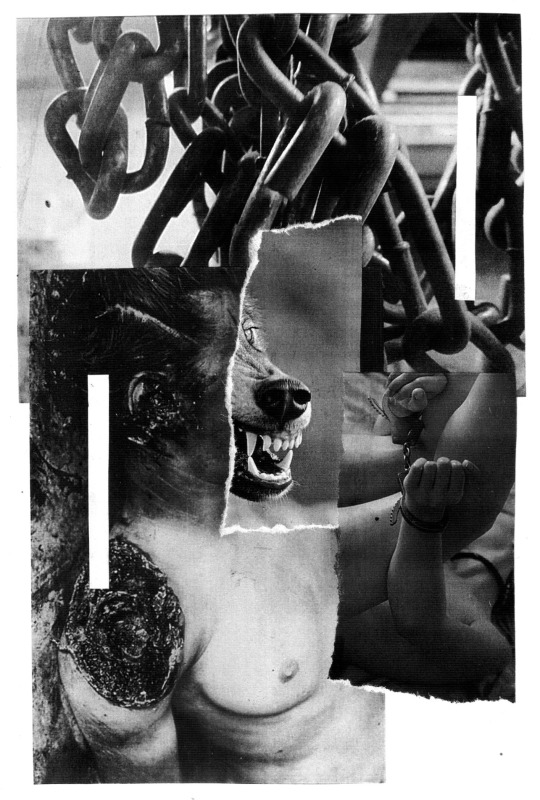
A well, a bullet hole in a glass, a prone corpse in a wood: these elements constitute a reflection about death, that strikes all of a sudden, sinking into subterranean, unknowable regions.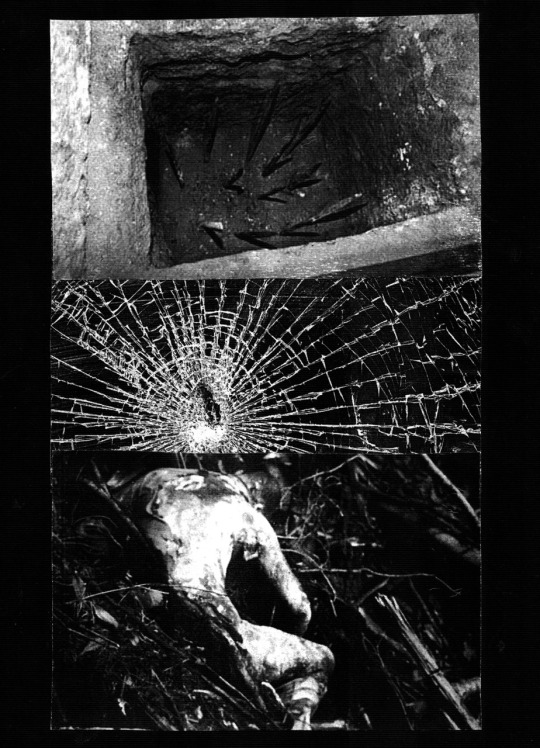
Old bodies, sick or dead, are pulled together with young, velvet diva’s flesh, with an effect of sprain.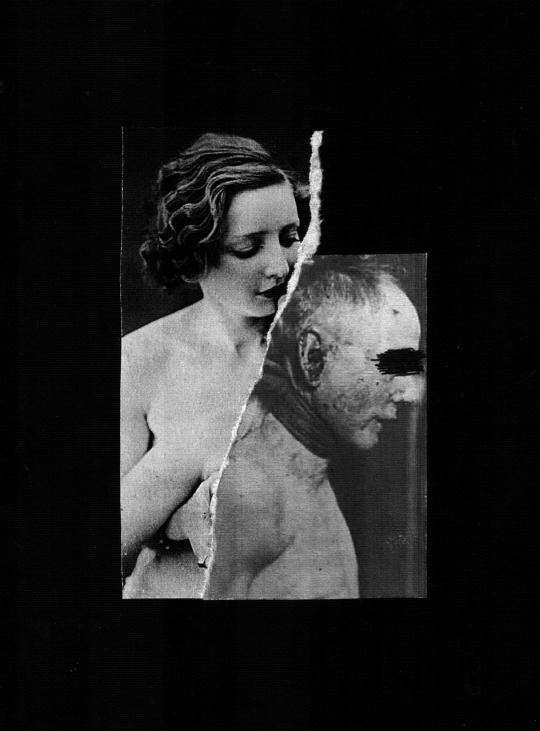
SEX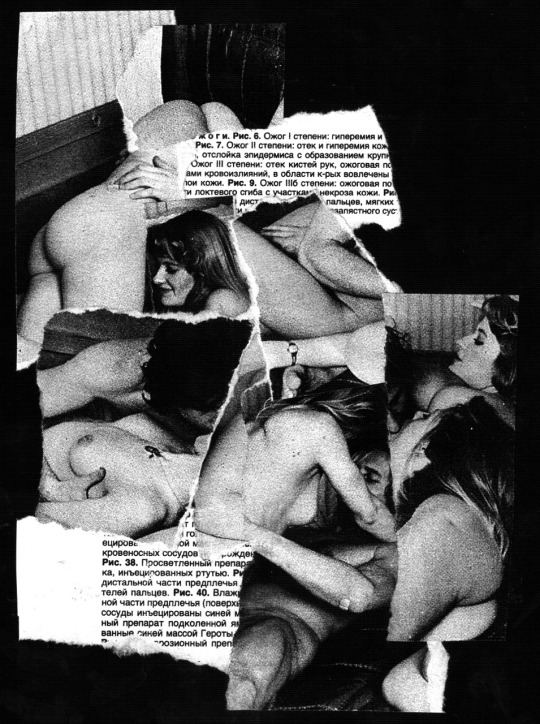
There is a strange phenomenon, very difficult to explain. When physical or mental pain gains the critical mass, it becomes so totalizing, intimate and precious that it gets erotized. It is really difficult to understand, but that’s just the way it is. To erotize the pain is a way of transforming it in a performance, a theatrical act, with a concrete value. Physical and, therefore, cathartic.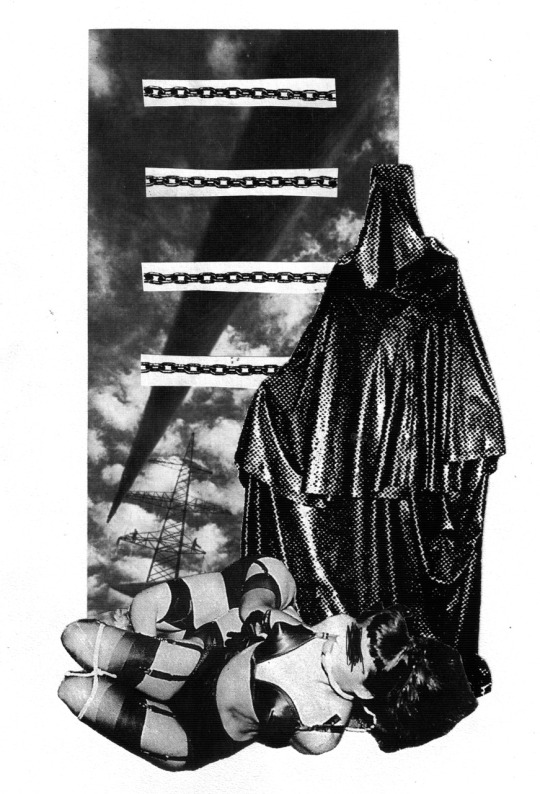
In one work there is written: “There is nothing more to feel. Cut me. Crawl inside.”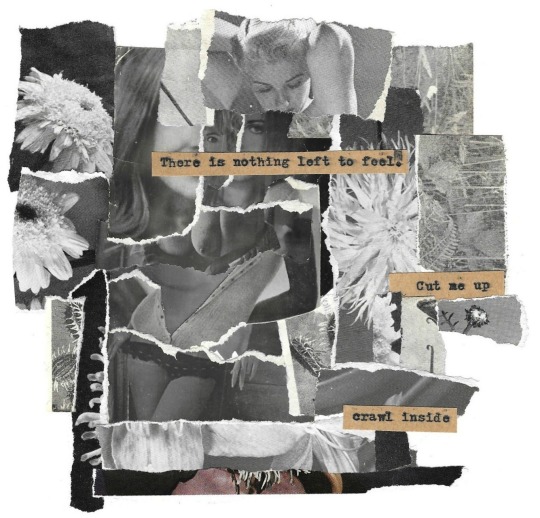
Another work is about “languishing howl in a constricted throat”.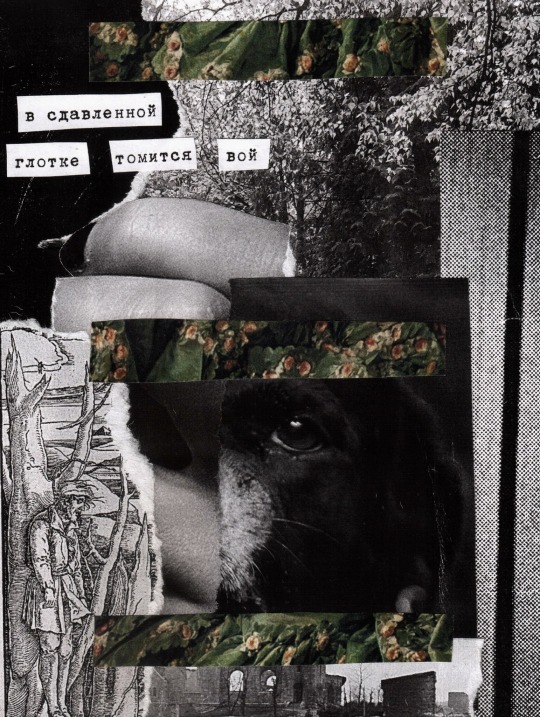
Bettie Page is severed at the navel level with an image of vultures feeding of a carcass, matching the idea of sex with cruelty, predation and waste.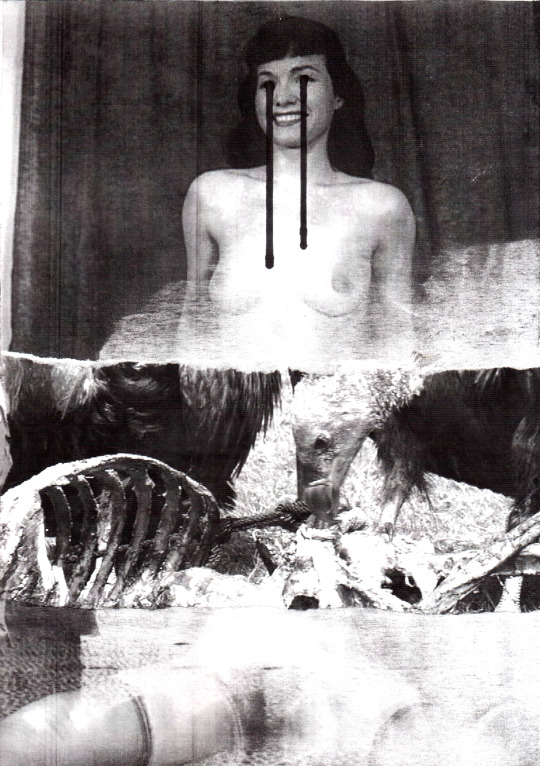
Like all Bataille’s lovers, Vnutrennosti seems to know that the ultimate ecstasy of death is similar to the ecstasy of sex, torture and mystical flight.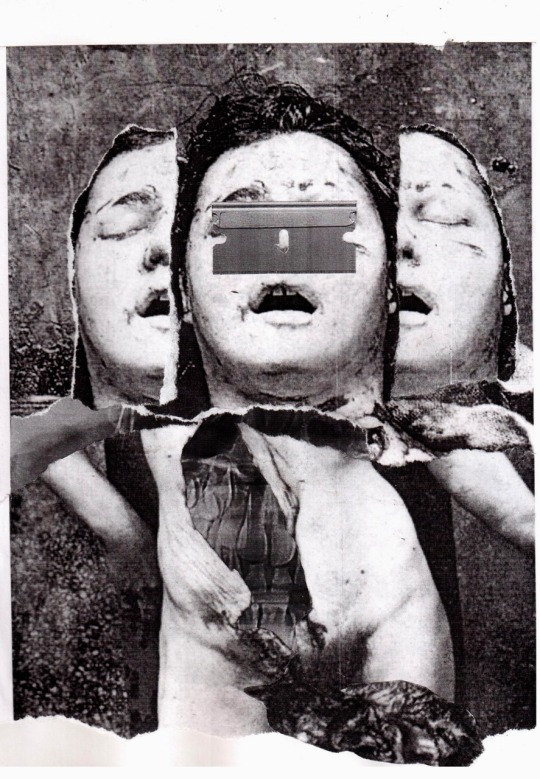
DEATH
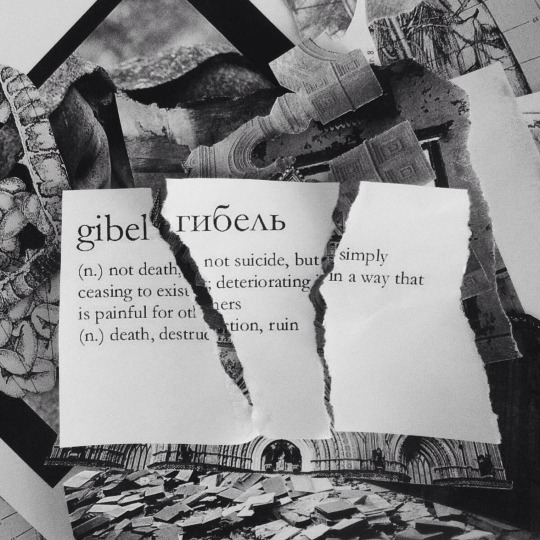 Even in his undeniable visual violence, Vnutrennosti represents death with solemnity and respect. Many works are dedicated to the suicide issue. The inscription “LOSER” labels playing cards, with specular loops, or heads sectioned by the passage of a train.
Even in his undeniable visual violence, Vnutrennosti represents death with solemnity and respect. Many works are dedicated to the suicide issue. The inscription “LOSER” labels playing cards, with specular loops, or heads sectioned by the passage of a train.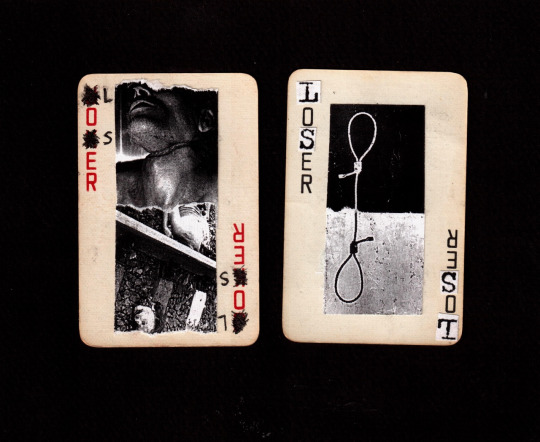
A whirl of butterflies, an ancient symbol of the other part of us, rises from a cut throat.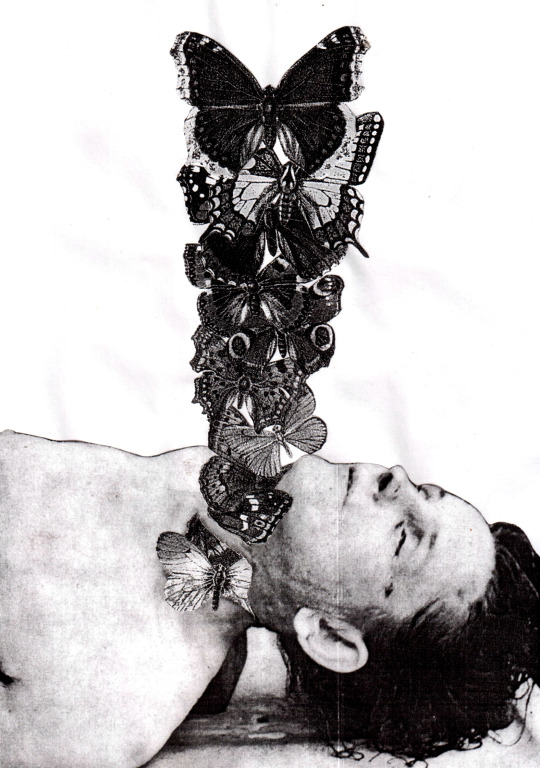
“Bent over backwards to an agony without genius, we are not neither authors of our twilights, nor umpires of our good-byes: the end is not our end: we lack the excellence of a sole initiative – for which we would rescue a tasteless and without talent life-, as we lack the sublime cynicism, art’s ancient pomp perishing. Desperation unimaginative persons, corpses that are accepted, we all survive and die just to fulfill a useless formality. It is as if our life was more busy postponing the moment in which we could liberate us of it.”
Vnutrennosti penetrates in the most radical depths of the history of art and civilization, showing the sacred and terrible beauty of the body, even if it is sick, slaughtered, dead, subdued, old or crooked.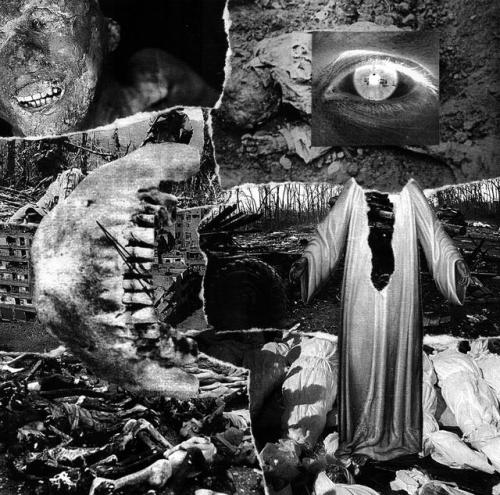
Thanks to Aleksey, Rachele Cinarelli and Elena P.
Bibliography
http://vntrnnst.tictail.com/products
https://vnutrennosti.tumblr.com/
https://www.instagram.com/vnutrennosti/
http://www.brainwashed.com/common/htdocs/publications/coil-1983-manifesto.php?site=coil08
https://noisey.vice.com/it/article/john-balance-rip-10
http://www.ilpost.it/2011/04/04/storia-lobotomia/
http://www.treccani.it/enciclopedia/lobotomia_(Dizionario-di-Medicina)/
http://www.my-personaltrainer.it/salute-benessere/lobotomia.html
http://instagram.com/lydialazarus
https://www.instagram.com/null_rye/
https://www.instagram.com/shittter/
https://www.instagram.com/_eroth/
http://ish-bosheth.tumblr.com/
https://www.instagram.com/seuqq/
https://www.instagram.com/weloveprison/
